Shows
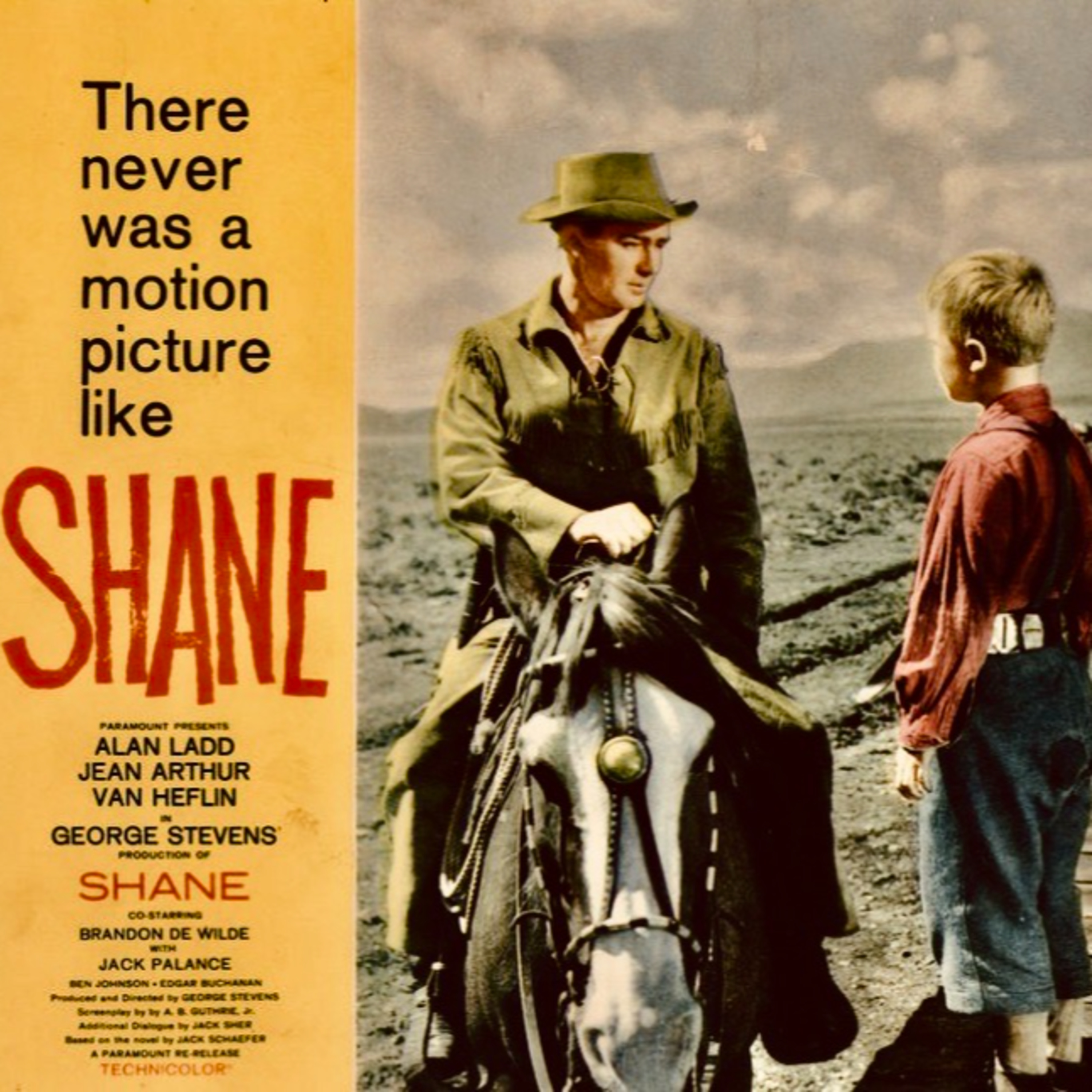
Wósdéé PodcastEpisode 40: Shane [1953] Movie Review (w. Indians Watching Cowboys)We review the movie Shane (1953). We talk about primitive accumulation, homesteading, agrarian capitalism, cattle industry, masculinity, and more. I've included time-stamps below and a link to 'Indian Watching Cowboys' podcast.
We show our appreciation for the script between discussions of themes and the plot.
(2:50)- Introduction
(6:11)- 'Make America Range Wars Again' and 'Chinese Weather Ballon' Tangents
(8:50)- How Racist was this movie?
(13:25)- Native Reservations, Cattle Industry, & Homestead Act
(20:00)- Homestead Act of 1862 & Its Consequences
(26:00)- Representation of...
2023-04-031h 04
Wósdéé PodcastEpisode 39: Disability, Value Politics, & Indigenous Resistance (ft. Sandra Yellowhorse)In this episode, I speak to Sandra Yellowhorse about her recent article, "Disability and Indigenous resistance: mapping value politics during the time of COVID-19" (2022). We discuss capitalist notions of productivity, value rubrics, and disability in a settler-colonial state. We think through these themes in the context of the pandemic in the Navajo Nation.
Opening theme: @PurpleCatsinSlacks
Alice Wong Podcast:
https://disabilityvisibilityproject.com/podcast/
2022-10-2133 min
Native Film TalkDark Winds w/ Majerle Lister (Host of Wósdéé Podcast)Listen as I dive into season 1 of Dark Winds with my guest Majerle Lister, host of Wósdéé podcast and co-host of F*ckin Sick Podcast. We do deep dive of how this compares to the previous PBS Hillerman films and general reception of the Hillerman novels among Navajo people. Additionally we discuss the impact of having an all native writers room for this series and including historically accurate events for the 1970s on the Navajo reservation. As always we do a cast review, discuss positives/negatives, and wrap up our overall thoughts of the seaso...
2022-08-211h 55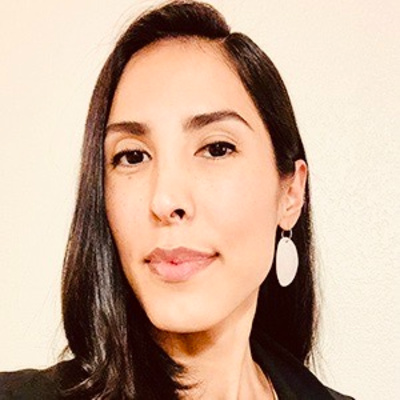
Wósdéé PodcastEpisode 38: A Cooperative Future (Ft. Bijiibah Ruth)In this episode I talk to Bijiibah Ruth about the potential of cooperatives within the Navajo Nation. We briefly cover the cooperative history, social solidarity characteristic of cooperatives, and how they can exist in the Navajo Nation. We discuss the limits to cooperatives which are the same obstacles that small businesses have regarding bureaucracy.
2022-08-1038 min
Wósdéé PodcastEpisode 37: Navajo land and Economic DevelopmentIn this episode, I spoke to Ezra Rosser, a law professor, on Federal Indian law & poverty. We talked about Navajo corruption, land use, property, and economic development. We talk about cover economic development literature(dominated by neo-classical theory) and limitations in the Navajo context.
Link to purchase book:
https://www.cambridge.org/core/books/nation-within/3BC620B583BFBB410D3E699151B34D6A
2022-04-2037 min
Harbinger ShowcaseIndigenous Sovereignty & Revolution (Deathnography ep8 w/ Majerle Lister & Alexandra Lépine_Deathnography speaks to academics and shares ethnographic analysis and fieldnotes in deep-dive conversations about anthropology, politics, memes, and more. On a new episode host Henry Lee speaks with Wósdéé Podcast host, University of Arizona PhD and member of the Navajo Nation Majerle Lister about sovereignty, the history of Navajo tribal government, red-baiting, and solidarity between Indigenous and white working people then sits down with Métis communist and organizer & Theory and Criticism PhD candidate at Western University Alexandra Lépine to talk about class and colonial antagonisms in Canada, identity and the concept of “white-passing,” and the necessity of anti-fasc...
2022-03-281h 52
Harbinger ShowcaseIndigenous Sovereignty & Revolution (Deathnography ep8 w/ Majerle Lister & Alexandra Lépine_Deathnography speaks to academics and shares ethnographic analysis and fieldnotes in deep-dive conversations about anthropology, politics, memes, and more. On a new episode host Henry Lee speaks with Wósdéé Podcast host, University of Arizona PhD and member of the Navajo Nation Majerle Lister about sovereignty, the history of Navajo tribal government, red-baiting, and solidarity between Indigenous and white working people then sits down with Métis communist and organizer & Theory and Criticism PhD candidate at Western University Alexandra Lépine to talk about class and colonial antagonisms in Canada, identity and the concept of “white-passing,” and the necessity of anti-fasc...
2022-03-281h 52
Deathnography Podcast#8. Indigenous Sovereignty & Revolution fr Majerle Lister & Alexandra LépineIn this episode, I speak with Majerle Lister (member of the Navajo Nation, host of Wósdéé Podcast, PhD at University of Arizona) about sovereignty, the history of Navajo tribal government, red-baiting, and solidarity between Indigenous and white working people. I also speak with Alexandra Lépine (Métis communist and organizer, Theory and Criticism PhD candidate at Western University) about class and colonial antagonisms in Canada, identity and the concept of "white-passing," and the necessity of anti-fascist organizing. ***LINKS - MAJERLE*** The report discussed with Majerle, Land Reform in the Navajo Nation, can be...
2022-02-101h 52
Wósdéé PodcastHalloween RoundtableReposted from soundcloud but only a few people heard it. This episode is from last year where a bunch of friends of mine come together to tell scary stories. Thanks to those who joined us.
Background music: www.youtube.com/channel/UC_6hQy4elsyHhCOskZo0U5g
2021-10-2739 min
Wósdéé PodcastEpisode 36: Public Health & Ké in Navajo NationIn this episode I talk to Dr. Teresa Montoya and Dr. Marc Emerson about their recent article, "Confronting Legacies of Structural Racism and Settler-colonialism to understand covid 19 impacts on the Navajo Nation". We discuss public health and critical expansion of the concept. Both articulate the limits of western epistemologies and the potential of including Navajo epistemologies.
(6:20) - What is Public Health?
(19:45) - Lessons from the 1918 Flu
(30:14) - Optimistic Stories and Conclusion
Thank you to Teresa and Marc.
Thumbnail photo of Mural by Ivan Lee
2021-09-2944 min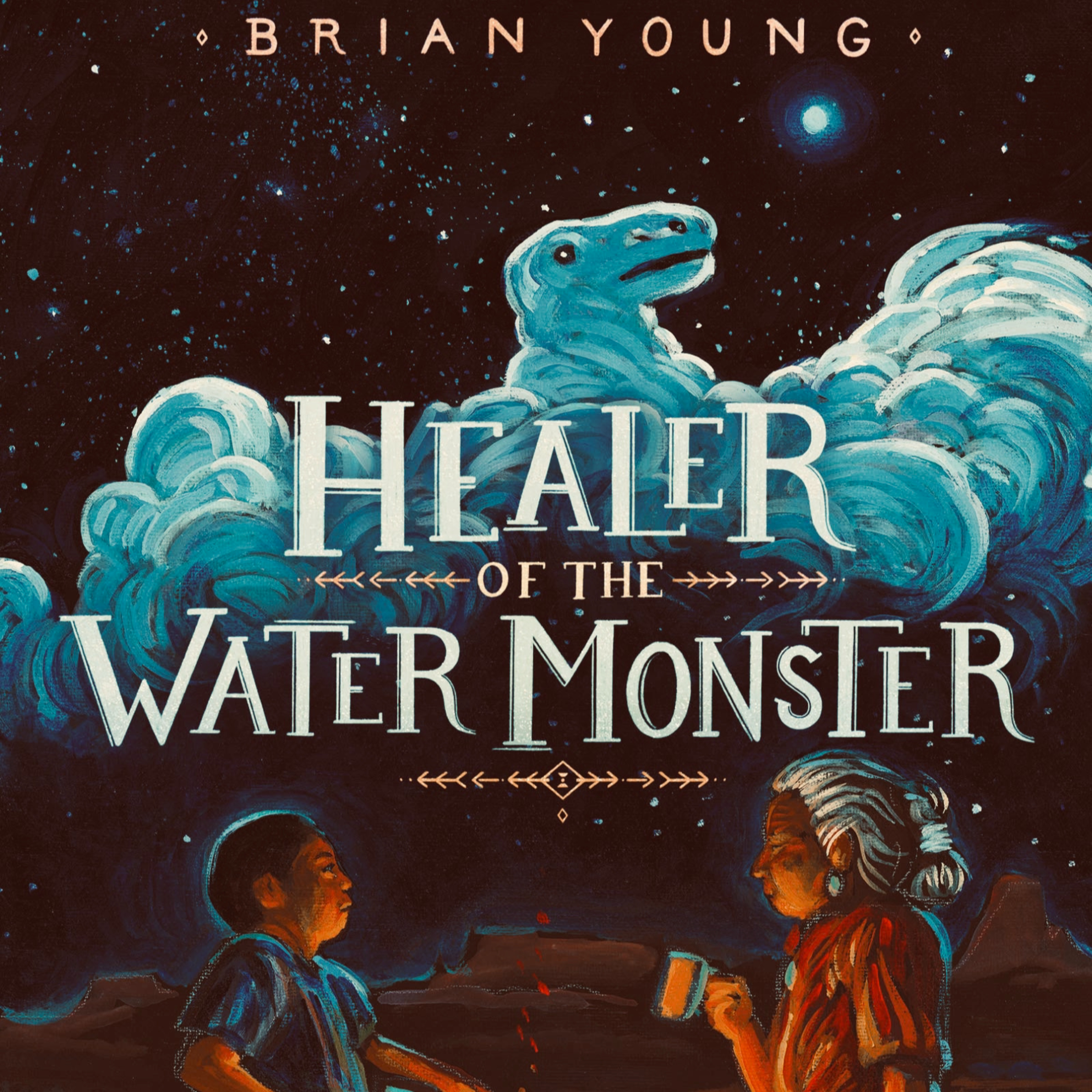
Wósdéé PodcastEpisode 35: Brian Young and 'Healer of the Water Monster'In this episode, I talk to Brian Young about his new book, 'Healer of the Water Monster'. I've known Brian since our time at Diné Policy Institute. His new book was released in May of 2021. We talk about the story, themes, and his experience pitching the book to publishers. I highly recommend it.
I've include a link for purchasing the book below:
www.harpercollins.com/products/heale…er-brian-young
Brian Young's instagram:
www.instagram.com/byoungwrites/
2021-08-0437 min
Native Film TalkMajerle Lister (Host of Wósdéé Podcast)I had a great chat with Majerle Lister, host of Wósdéé podcast! I am a fan of his podcast and we had been kicking the can down the road for too long. We just linked up and did an episode! I'm so happy he came on because he brought thought provoking conversation. Accurate Native representation is important but why now? Why is it all seem to be happening now? Is this going to become another form of cultural appropriation/exploitation that indigenous people will need to battle? I think history tells us we need to pr...
2021-07-031h 43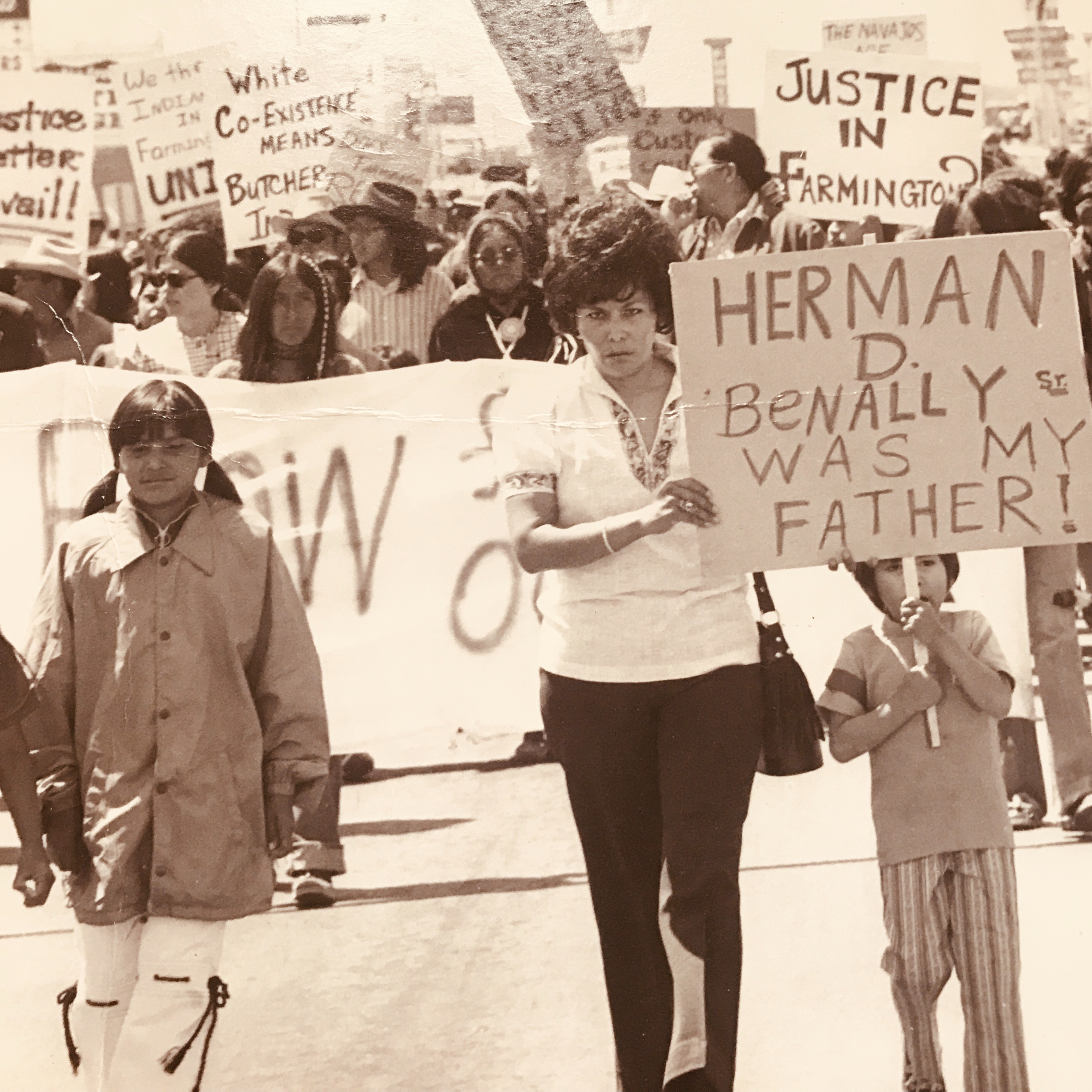
Wósdéé PodcastEpisode 34: Navajo Organizing in Farmington 1974In this episode I talk to Rodney Barker, the author of the Broken Circle. His book details the events during the summer of 1974 in Farmington, NM. In 1974, three Navajo men, Herman Dodge Benally, John Earl Harvey, and David Ignacio were murdered by white teens. From April to June, Navajo organizers strategized and implemented actions to oppose the racism in Farmington. In this episode we cover the events from Barker’s perspective and the information he gained from his interviews. Thank you to Rodney Barker for his time. Thank you for listening.
Helpful Links:
Rodney Barker Website:
2021-06-1523 min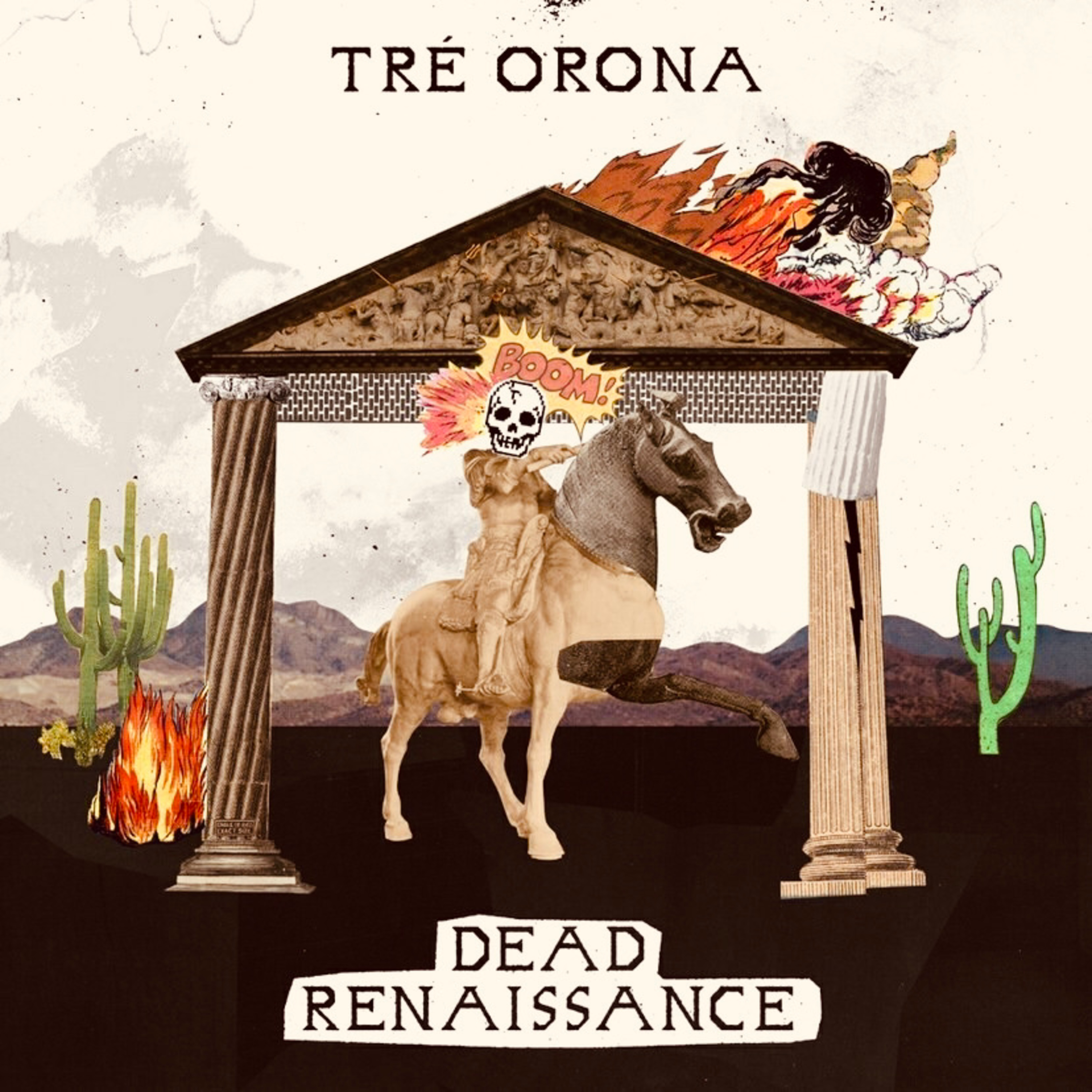
Wósdéé PodcastEpisode 33: Tré Orona InterviewIn this episode, I interview Tré Orona about his new album, Dead Renaissance, which is releasing May 7th, 2021. We discuss the inspirations, Marxism, books, common sense/hegemony, and political conditions that provided the groundwork for the album.
I would like to thank Tré for joining me on the podcast.
The album, 'Dead Renaissance' can be purchased below:
fangoverfistrecords.bandcamp.com/album/de…aissance
2016 Fuxgiven EP:
https://fangoverfistrecords.bandcamp.com/album/fuxgiven-ep
2021-05-0628 min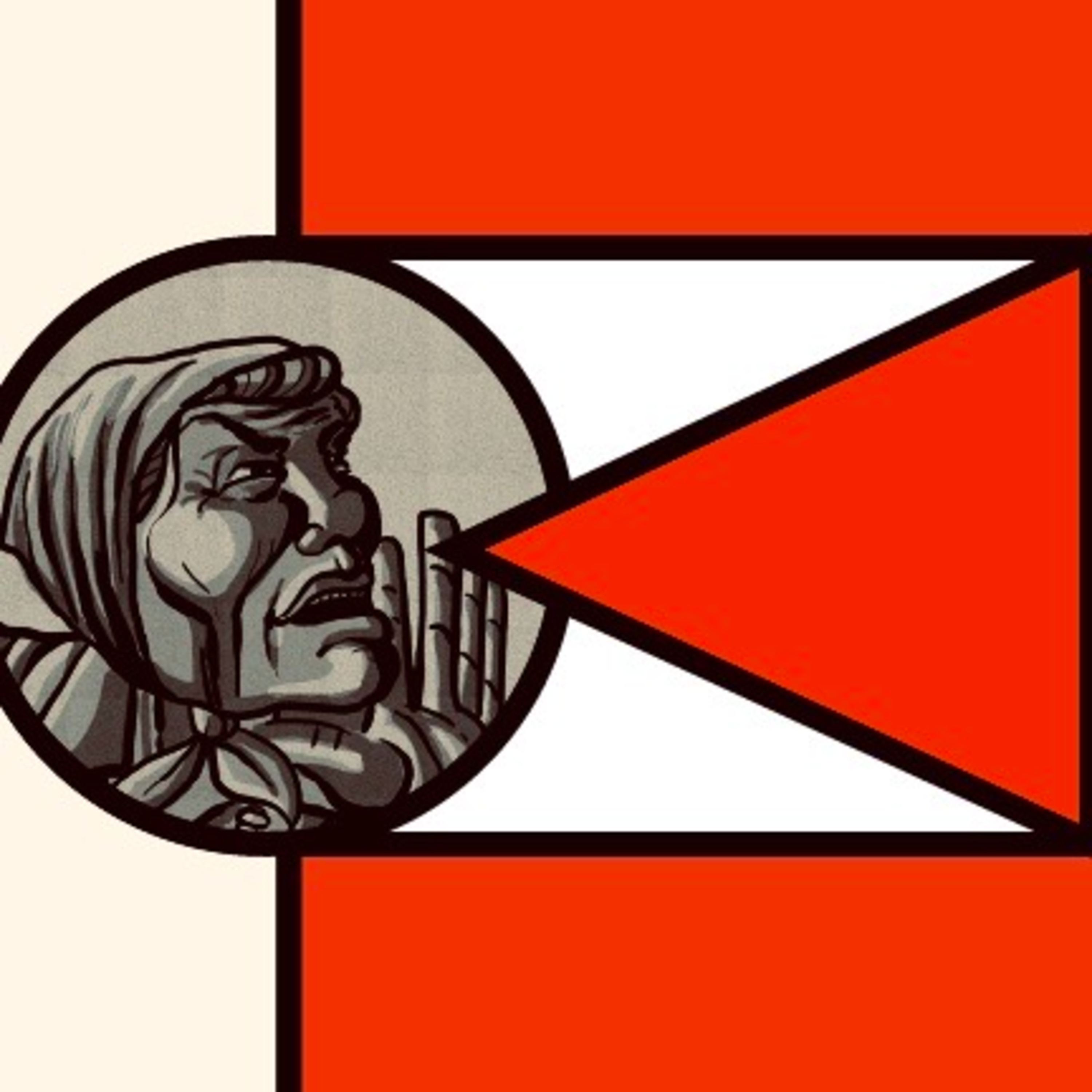
Wósdéé PodcastAnytime Minutes 1I remember calling folks with a phone card with a limited amount of minutes but if I waited until 9pm I would have access to unlimited minutes. I'm feeling nostalgic for that so I dedicated a podcast episode to calling my friends asking about their stories based on various topics.
In this episode, I asked artist friends of mine about their funniest or worst live shows. The Navajo Nation music landscape is diverse from House music to crust punk so there are a lot of stories out there.
These are some of their stories. I...
2021-02-0419 min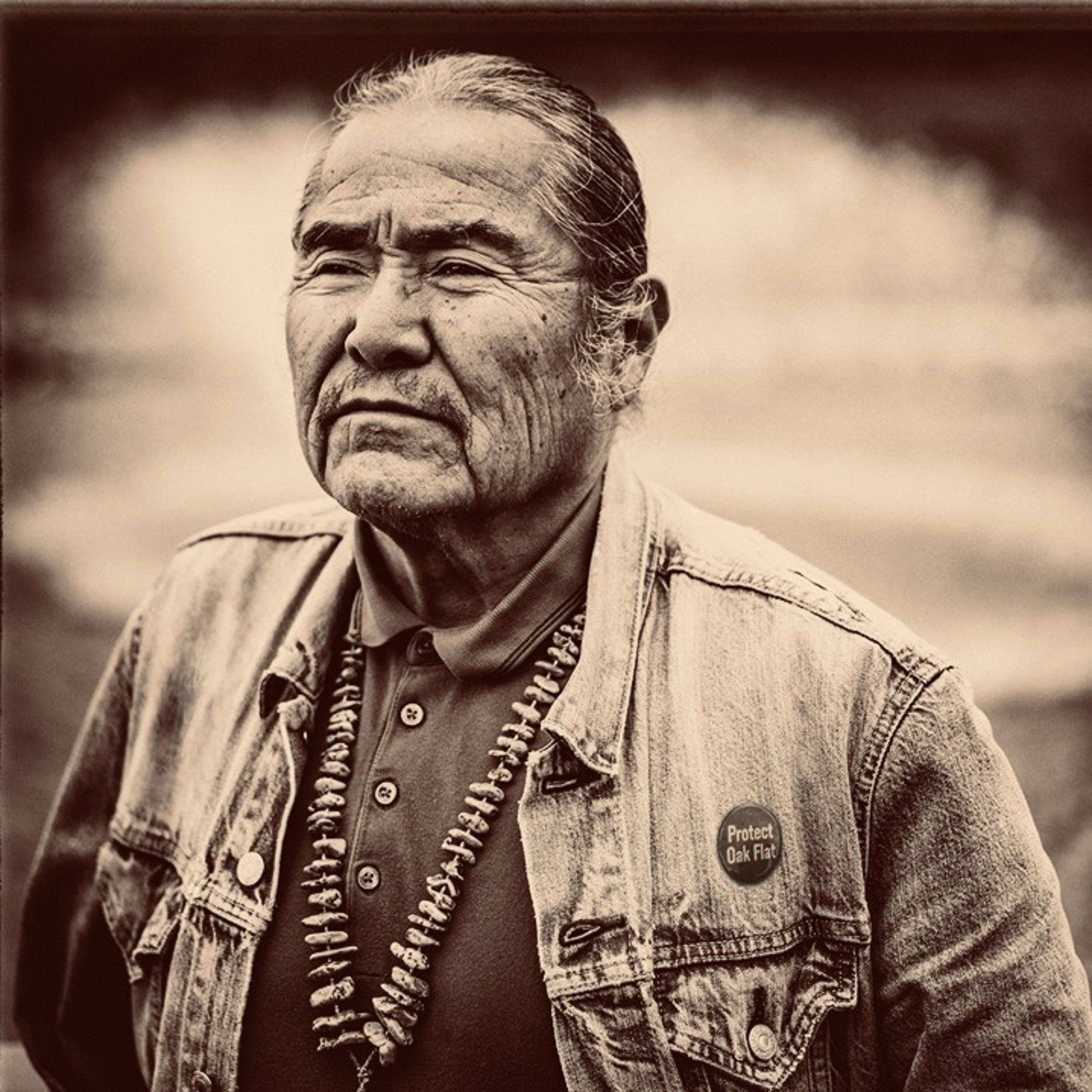
Wósdéé PodcastEpisode 32: The Fairchild Incident in 1975On February 1975, a group of 20 Indigenous activists from the American Indian Movement and the Coalition for Navajo liberation took over the Fairchild Semiconductor plant in Shiprock, Navajo Nation.
As Dr. Lisa Nakamura describes, Fairchild chose to insource from the Navajo Nation due to cheap labor, tax benefits, and Federal monies. After eight days and failed negotiations, Fairchild announced it would close and leave the Navajo Nation. This had a lasting impact in the Navajo community.
In this episode I talk a long term Shiprock community member. He was a band member of XIT. His name...
2021-01-1821 min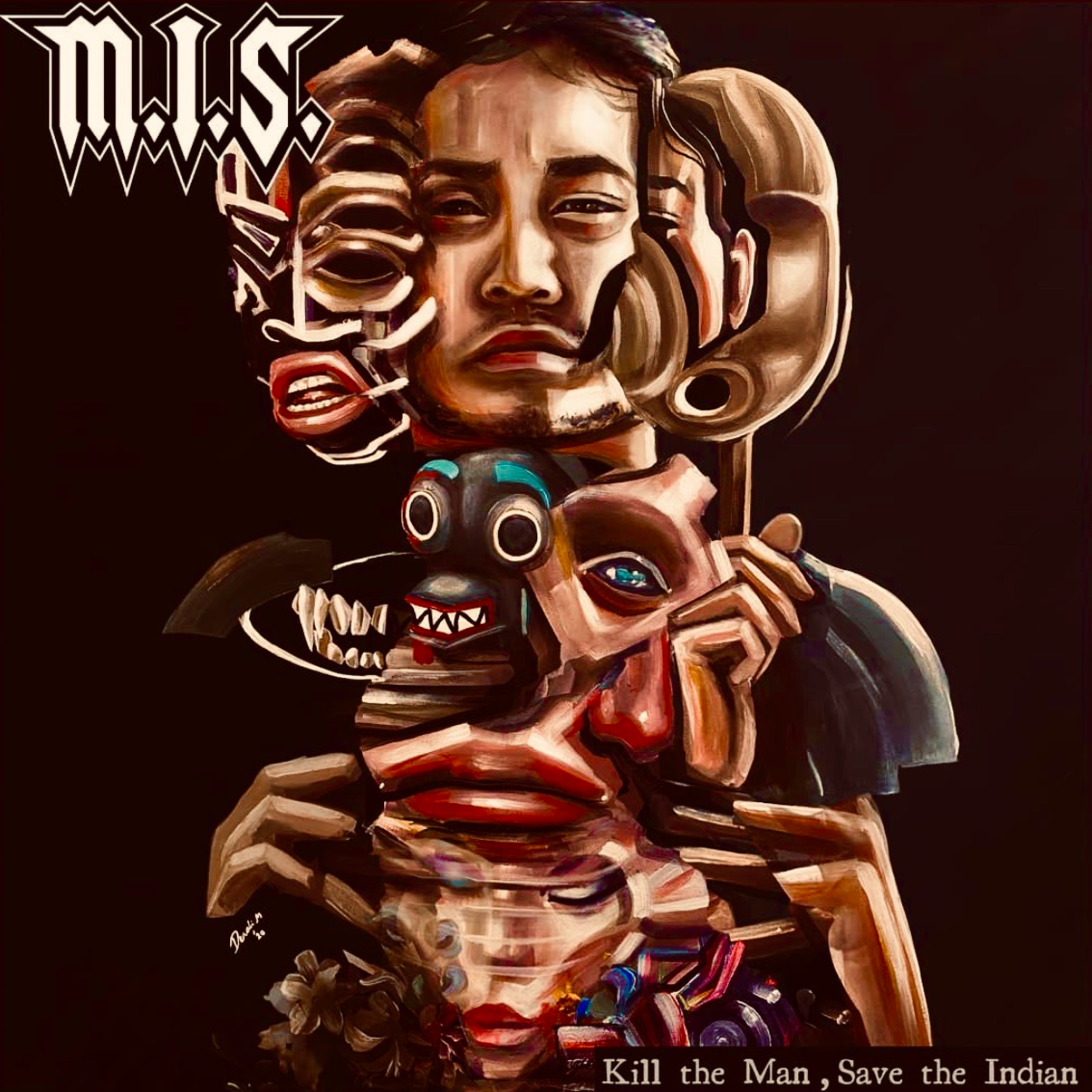
Wósdéé PodcastEpisode 31: Merciless Indian Savages Band InterviewIn this episode, I speak to Corey Ashley(Diné) and Jacob Stepetin (Unangax) from Merciless Indian Savages. Joseph (Hopi and Akimel O'oodham) was unable to join. We discuss their formation, inspirations, purpose of Merciless Indian Savages. Thank you to Jacob and Corey for talking to me.
Their album will drop on December 31st.
Their album design was created by: www.instagram.com/d.enali/
MIS Links: linktr.ee/mercilessndns
Instagram: www.instagram.com/mercilessndns/
Album link:
distrokid.com/hyperfollow/mis3/k…-save-the-indian-2
New Song, "F*cking Skoden" link:...
2020-12-0935 min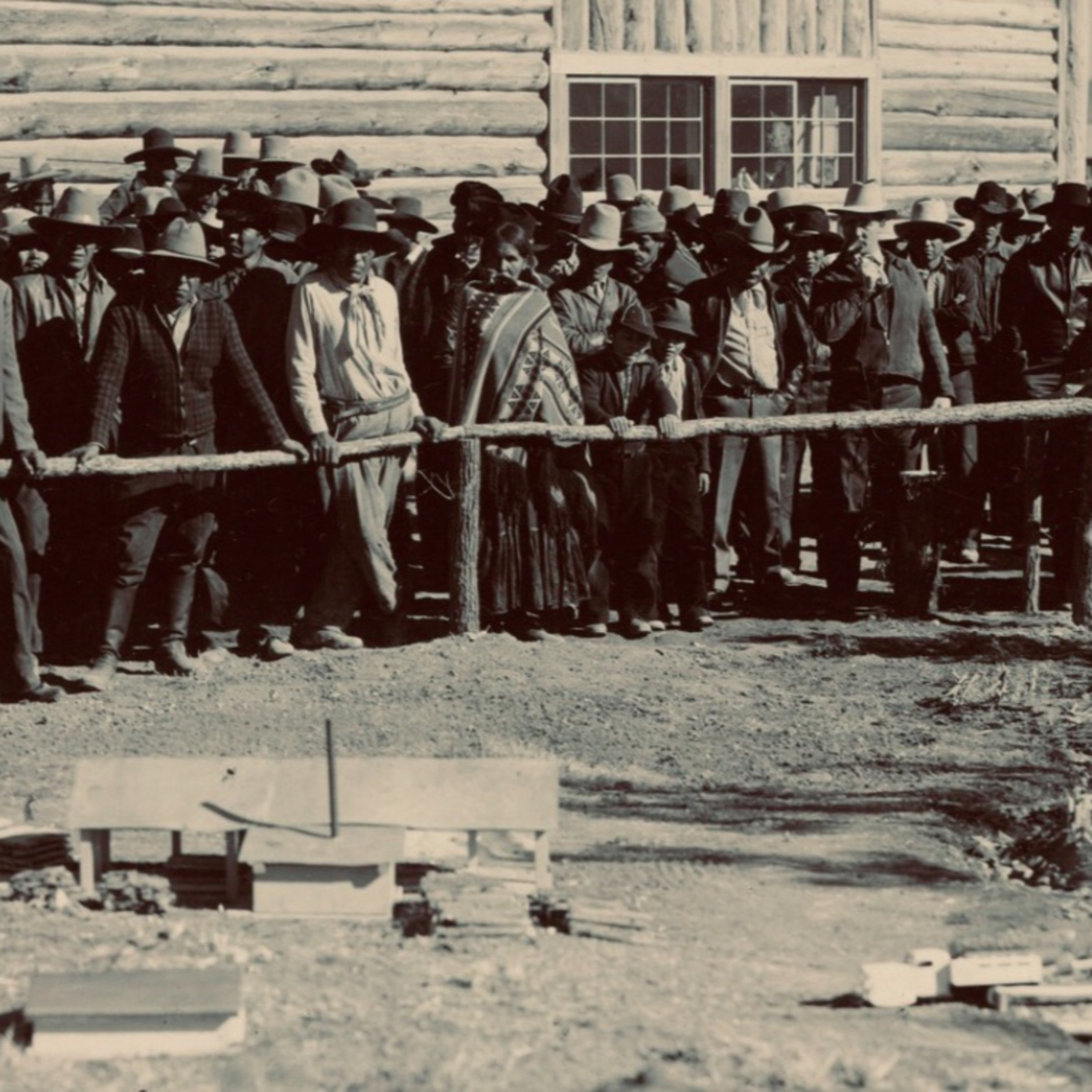
Wósdéé PodcastEpisode 30: Navajos, Modernity, and the Dusty 1930sIn this episode I talk to Zoe Toledo. Zoe is a Master's student studying Architecture at Harvard University. I found her article, "Experiments in Navajo “Modernity”: Demonstration Stations and Regional Development in the 1930s", while conducting research on the Navajo livestock reduction. We talk about the use of the modernity narrative, development, and the Navajo Nation in the 1930s.
I have attached Zoe's article below:
averyreview.com/issues/39/experim…jo-modernity#fn:8
Thanks for listening.
Opening music by:
@purplecatsinslacks
2020-11-2432 min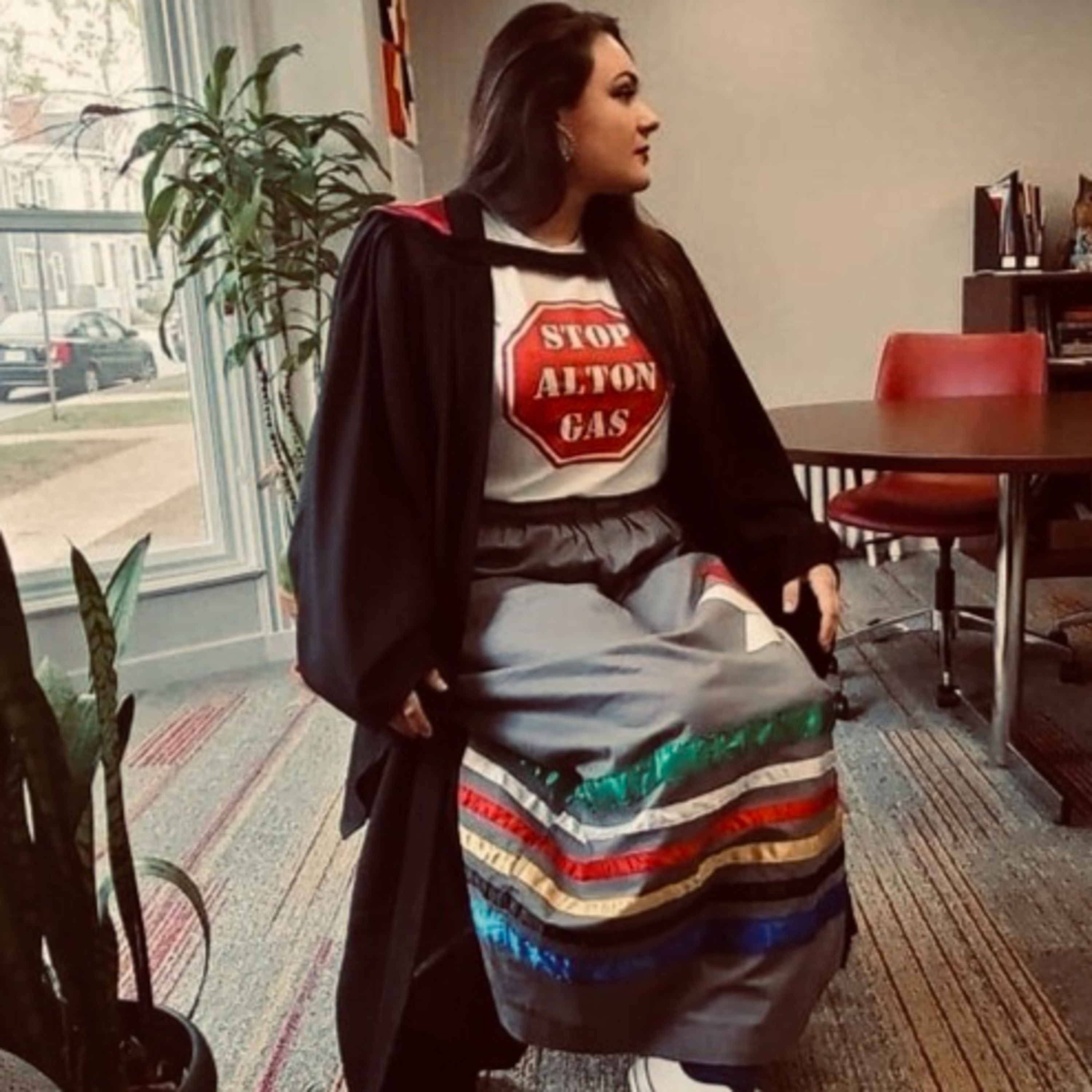
Wósdéé PodcastEpisode 29: Mi'kmaw Assertion of Self-DeterminationIn this episode I speak with Mercedes Peters.with Mercedes Peters. She is a Mi’kmaw history Ph.d student at UBC. We talk about the current situation in Saulnierville in Digby County in Novia Scotia. Mi’kmaw fishers established a lobster fishery with 350 traps, smaller than commercial fishing, to provide for their families and community. Settler fishers have been assaulting and harassing Mi’kmaw fishers. This is part of a longer history of Mi’kmaw assertions of self-determination. We discuss the Burnt Church crisis which occurred twenty years ago revolving the same issues. We discuss the conservation argument of settl...
2020-11-0241 min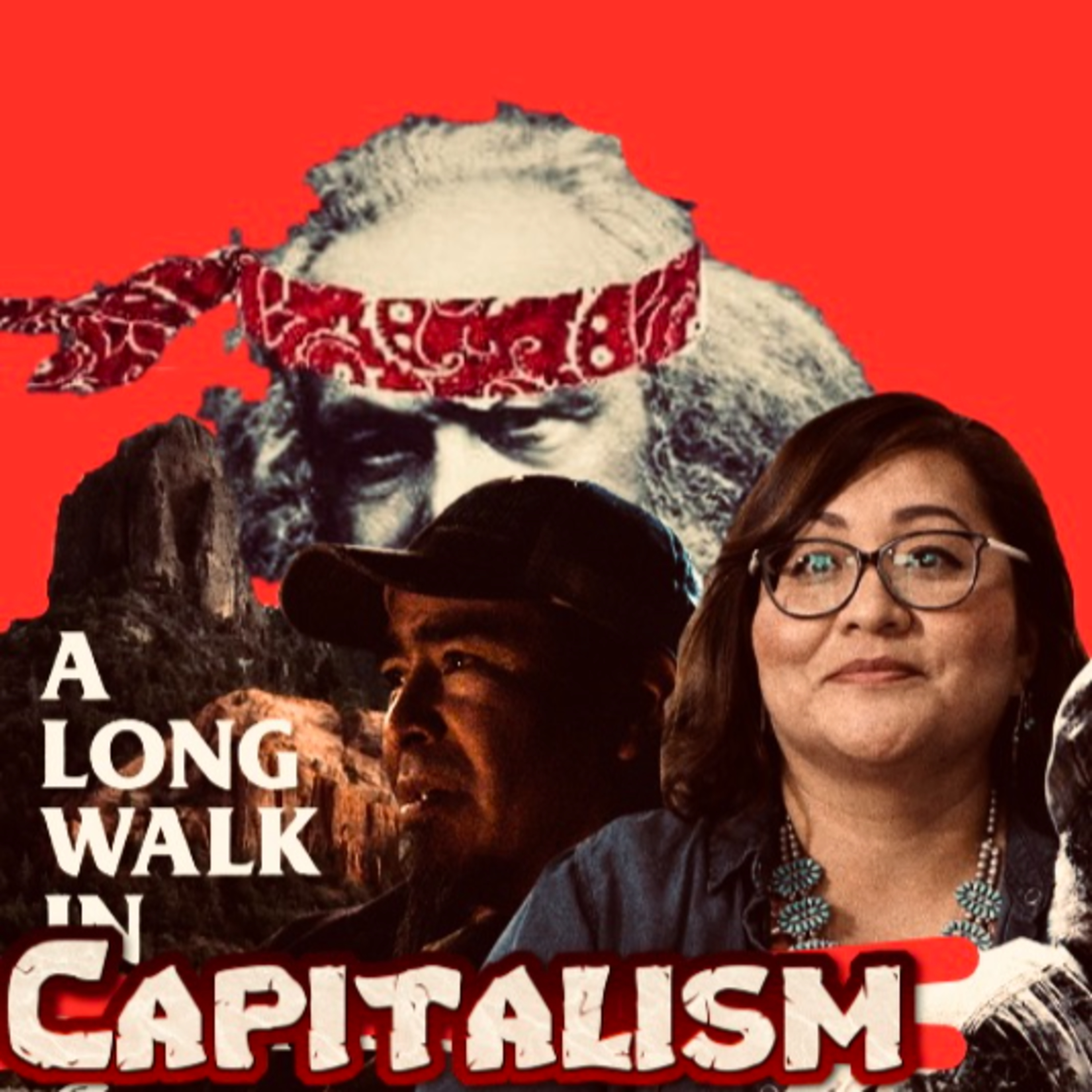
Wósdéé PodcastEpisode 28: Debunking Conservative KarensWe saw some capitalist propaganda floating in social media made by Navajo conservatives. So we decided to make fun of the propaganda. We look at Turning Point's high production, low education quality, video on the Navajo people and socialism.
In the spirit of Vine Deloria Jr., we get sarcastic and critical of colonial ideologies. We cuss and contextualize the arguments made which amount to "BIG GOVERNMENT, BAD" or "BIG GOVERNMENT, SOCIALISM". lol, you get the idea.
Karen Bedonie's argument proves the failures of capitalism and colonialism and barely touches upon Navajo history and socialism. We...
2020-11-011h 13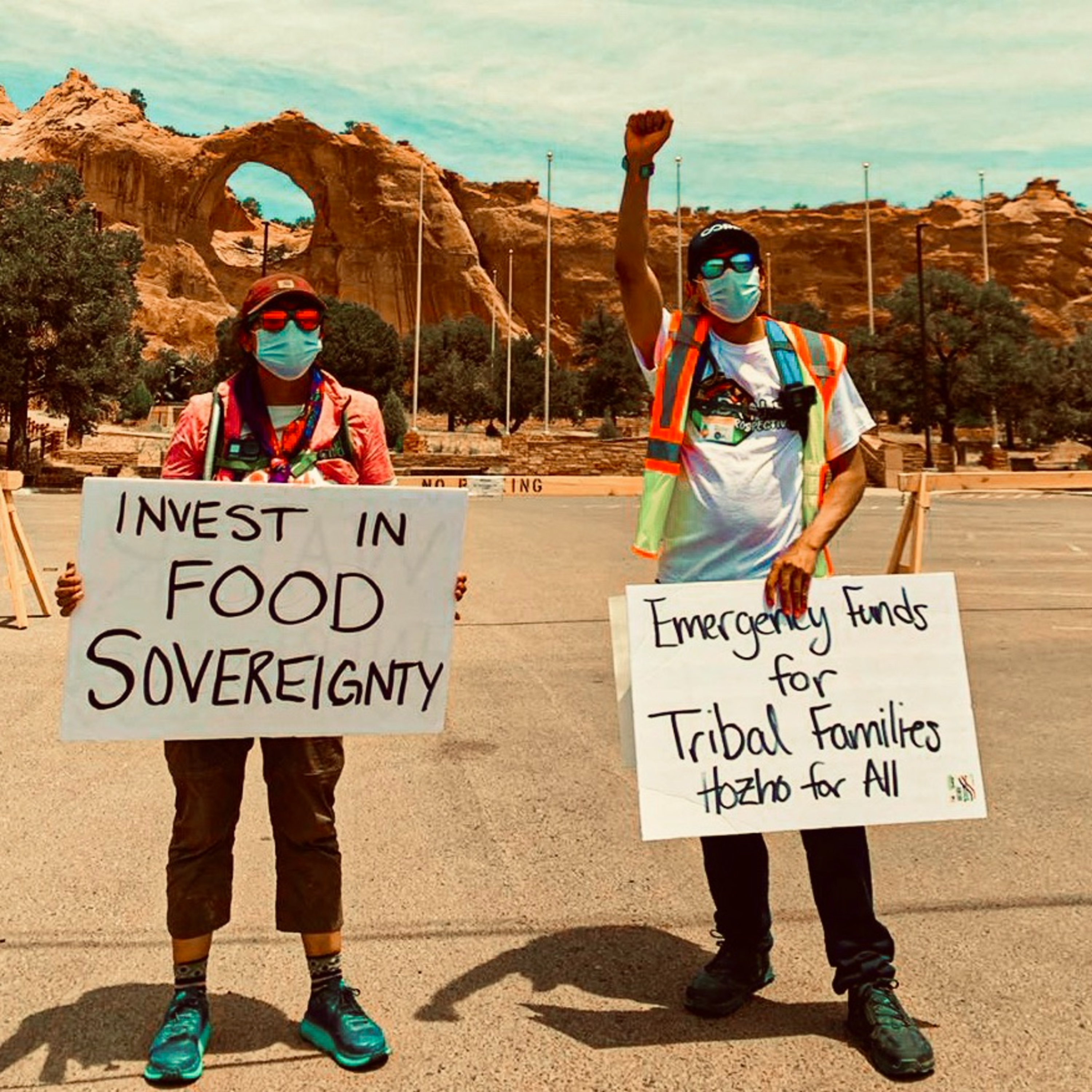
Wósdéé PodcastEpisode 27: Hemp Production in ShiprockIn this episode I talk to Kyle and Breanna about Dineh Benally’s hemp production in Shiprock, Navajo Nation. Breanna is a graduate student in Public Health, a farmer, and community advocator. Kyle is a community organizer where he is currently working on reintroducing healthy foods. He has been on the podcast before. Both are community members of Shiprock who have been watching and organizing against the hemp production in their community.
Hemp was introduced in their agricultural community three years ago by Dineh benally. We look at how he used the local farm board as well as...
2020-11-0139 min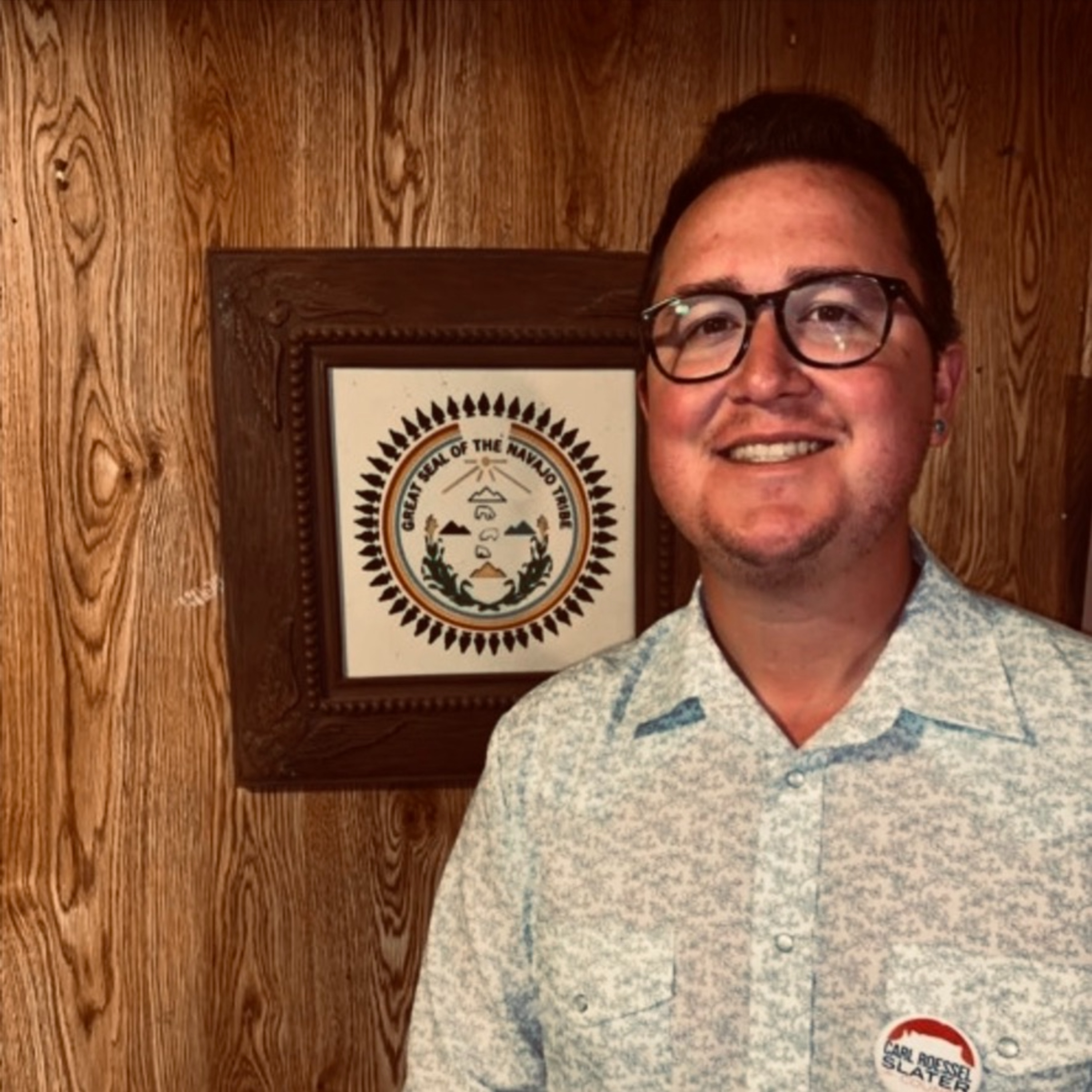
Wósdéé PodcastEpisode 26: Carl Slater on Navajo Sovereignty and Self DeterminationIn this episode, I talk to Carl Slater who is a Navajo Nation council delegate. We start our discussion looking at sovereignty and what it means to him. We imagine a form of sovereignty that is embedded in Navajo values and philosophy. We explore ideas of sovereignty based on his experience as a Navajo delegate. From there we discuss discourses online that read like colonial tropes of Indigenous peoples such as ‘Indigenous people can’t govern themselves’ and what that means for the political reality for Indigenous peoples and their self-determination. We discuss the relationship between the Navajo government and mu...
2020-11-0143 min
Wósdéé PodcastEpisode 25: Dr. Ryan Emanuel on the Atlantic Coast PipelineIn this episode I speak with Dr. Ryan Emanuel. He is a Lumbee associate professor at North Carolina state in the Department of Forestry and Environmental Resources. In this episode we discuss the Atlantic Pipeline and the recent decision to cancel its construction on July 7th, 2020. The pipeline began in 2013 under the Obama administration. It was projected to be 600 miles crossing from Virginia, West Virginia, and North Carolina. The Atlantic pipeline was described as an energy provider and job creator, for the region. Those opposed to the pipeline say its presence would have disrupted the water and eco-system while...
2020-11-0127 min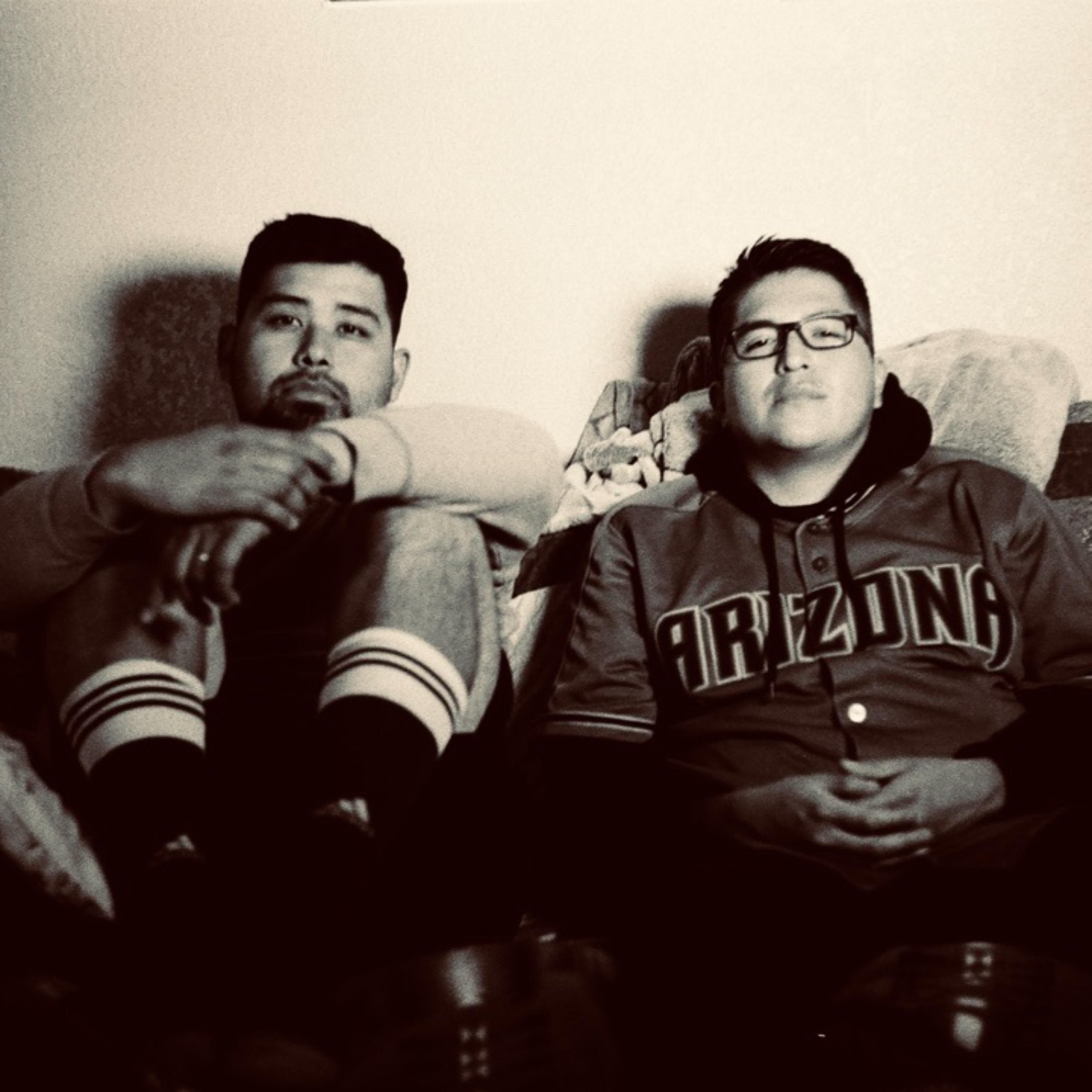
Wósdéé PodcastEpisode 24: An Illustrated Mess InterviewIn Episode 24, I talk to the members of @an-illustrated-mess about their recent release with Fake Four Inc, 'Last Night, and all our Glorious Mishaps'. We talk about their history, influences, and future plans as a hip/hop group. We delve into ideas of border towns, the music scenes surrounding the Navajo Nation, and artistic influences. Check and support their music.
They released a new album, 'One More for Safety' on July, 7, 2020.
fangoverfistrecords.bandcamp.com/album/on…r-safety
Link for 'Last Night, and all our glorious mishaps:
bandcamp.com/search?q=an%20illustrated%20mess...
2020-11-0143 min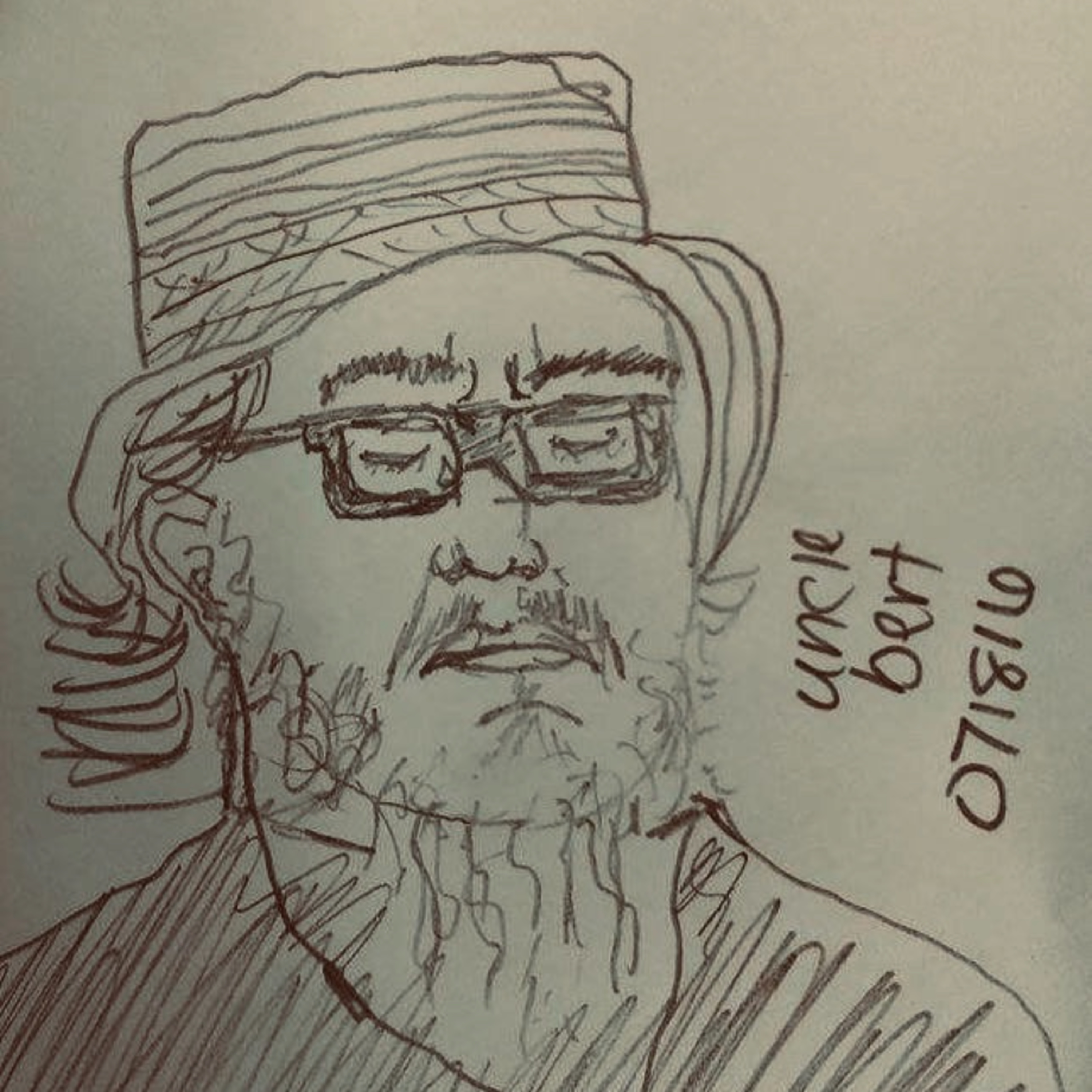
Wósdéé PodcastEpisode 23: Navajo Philosophy, Art Education, and Academic ImperialismIn this episode, I talk to Bert Benally. His work on art education reflects Navajo philosophy that challenges western approaches to art. He offers experiences and principles that guide his work and methods. He argues that accountability and respect for Navajo rules are important when creating art. He does not dismiss all of western approaches to art but recognizes that they also useful for others to learn. We end our discussion talking about academic imperialism, its role in erasing or dismissing of Indigenous thought.
Another reminder for listeners to be a good relative and do everything you...
2020-11-0134 min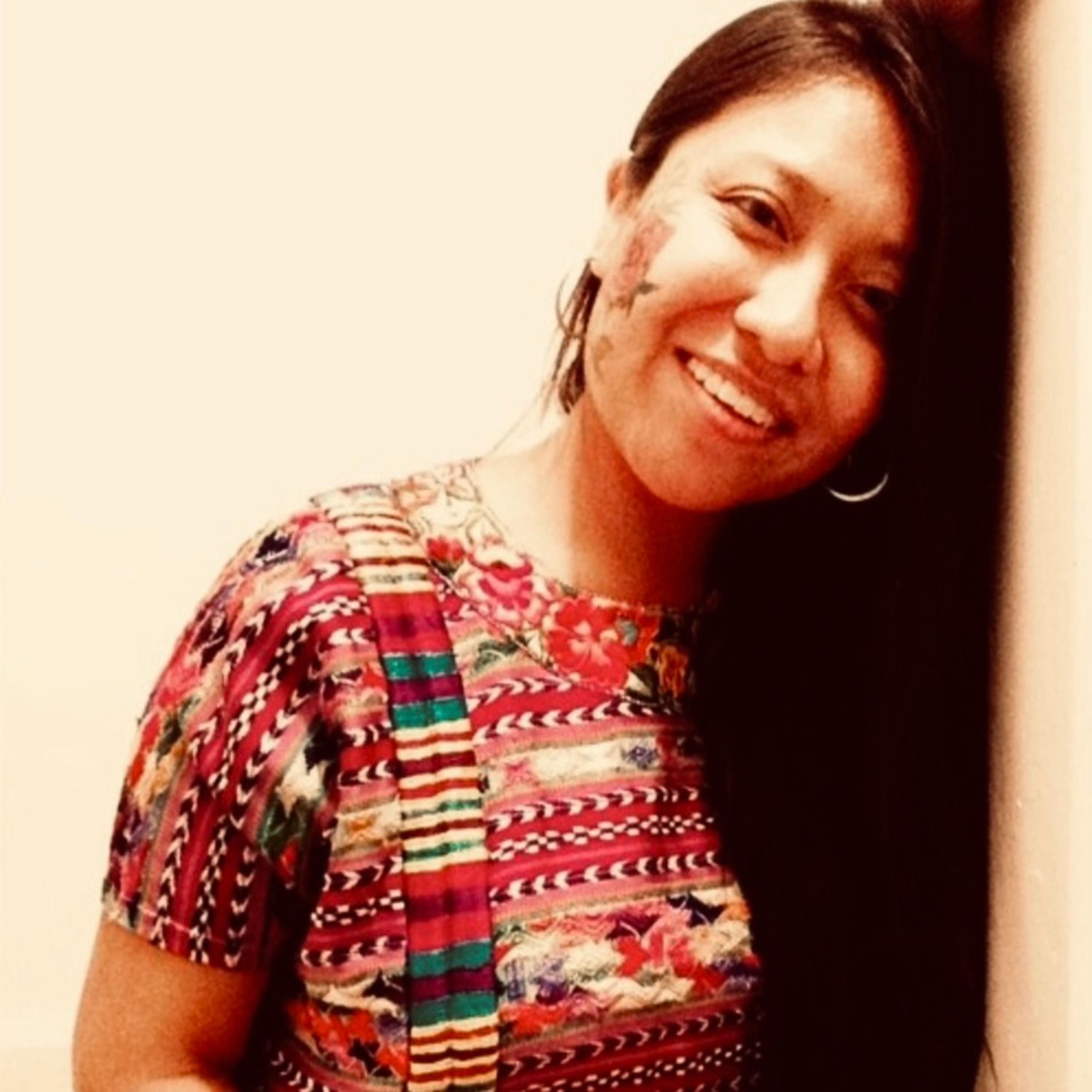
Wósdéé PodcastEpisode 22: Anthropology, Research, and the Importance of Silence and CommunityIn this episode I talk to Ana Rameriaz. She is a second year Phd student in Anthropology. She identifies as Maya Akateca. We talk about her experience in graduate school particularly in a anthropology. We unpack the experience of being in a white discipline. She discusses her introduction to anthropology, critiques of the discipline, and the importance of silence and community while in graduate school.
Introduction Music by:
@PurpleCatsInSlacks
2020-11-0138 min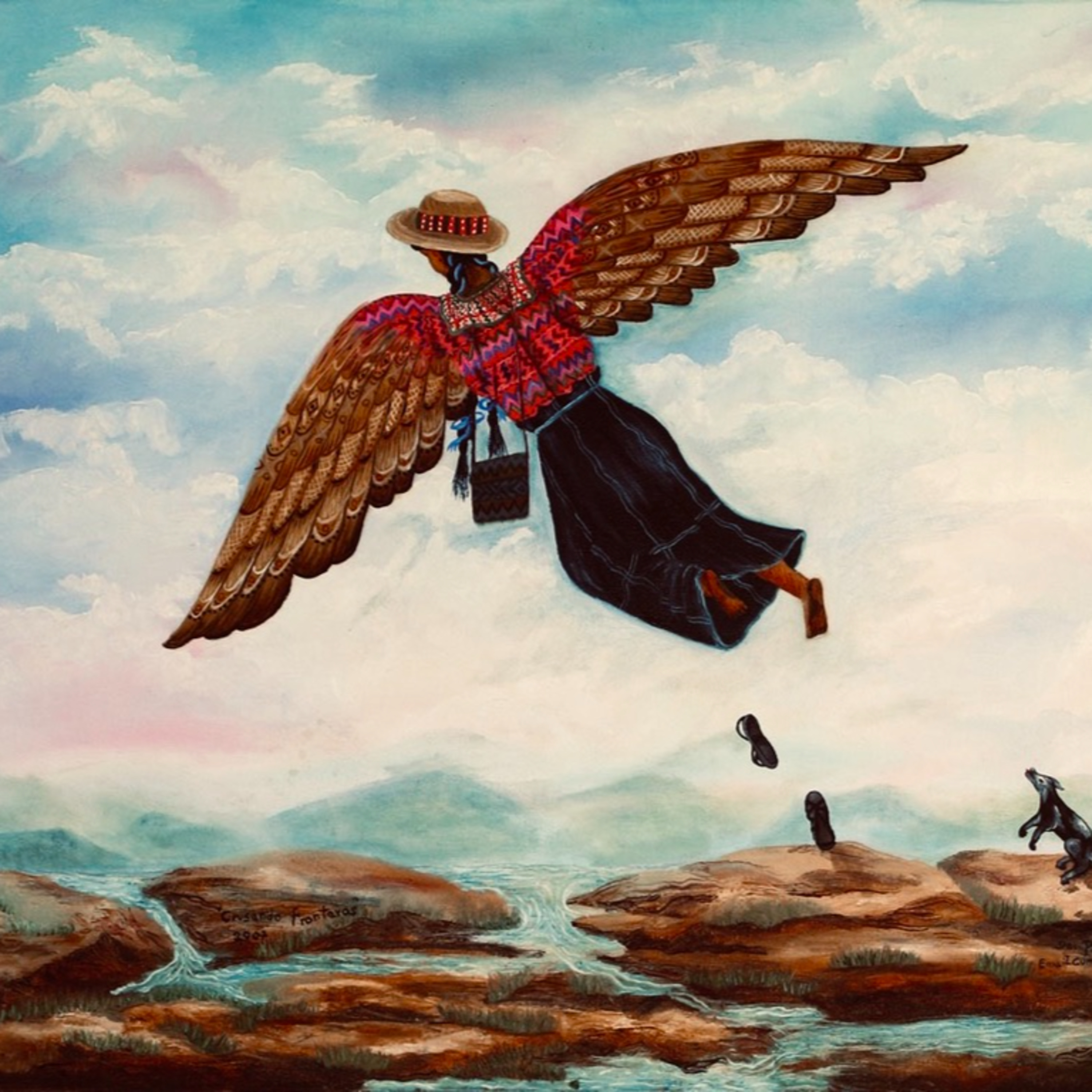
Wósdéé PodcastEpisode 21: Invisible No More Event! Maya Forced Migration, Asylum and Human RightIn this dispatch episode, I edit a recording from the "Invisible No More Event" at University of North Carolina. The panel is all mayan discussion Mayan migration. The participants are Gio’ B’atz’ (K’iche’ Maya)Floridalma Boj Lopez (K’iche’ Maya)Juanita Cabrera Lopez (Maya Mam),Geronimo Ramirez (Ixil Maya), and Mercedes Say (K’iche’ Maya).
The themes of this talk revolve around Mayan migration, Indigenous solidarity, extractivism, language, and erasure. It is not by coincidence that US imperialism is mentioned but not fully explored. This is important because when conversations about migration are discussed solely in terms of imperi...
2020-11-0136 min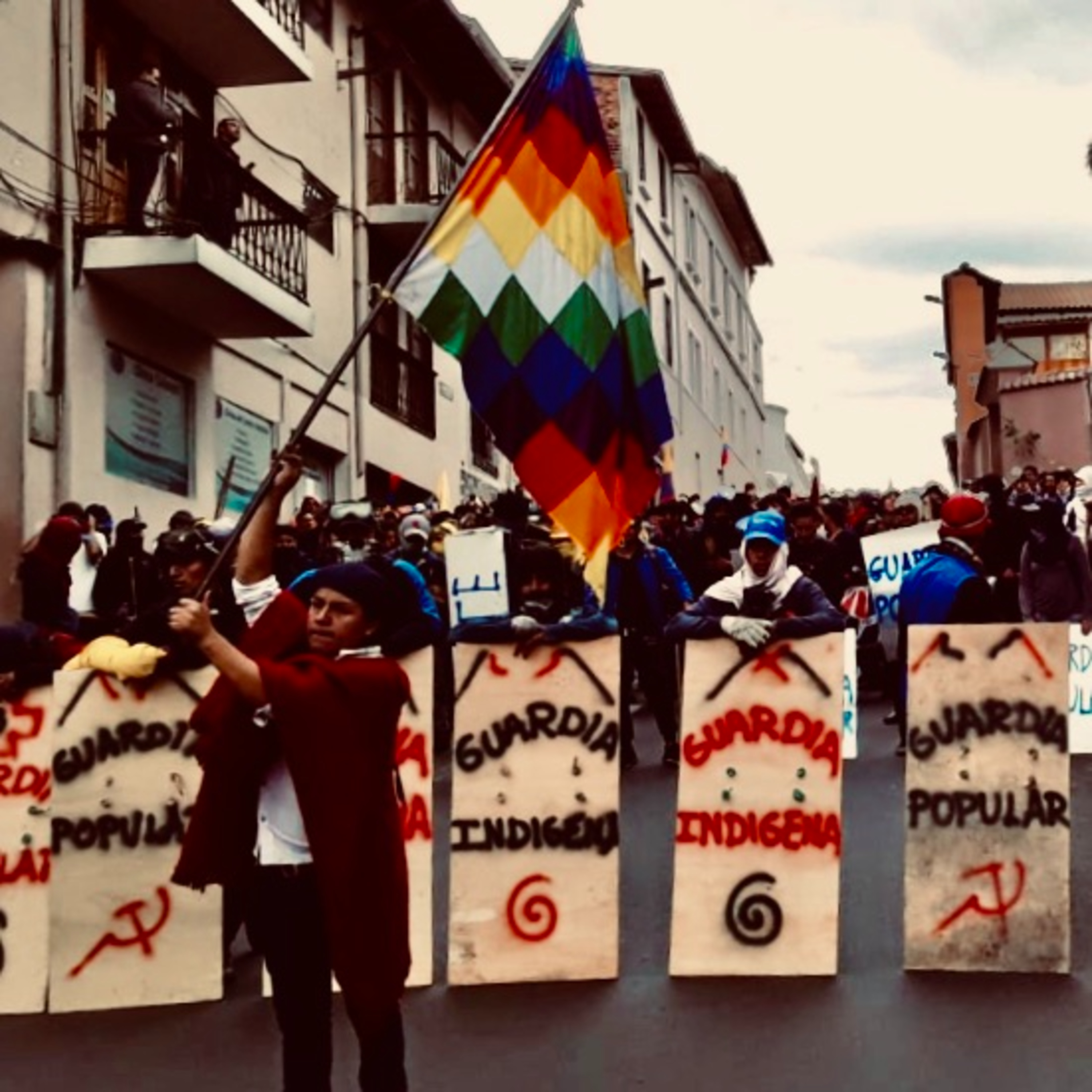
Wósdéé PodcastEpisode 20: Indigenous Resistance in EcuadorIn episode 20, I speak to Fredy Grefa, a PhD candidate at the Geography Department of UNC, about the demonstrations in Ecuador. He talks about the Indigenous resistance, leadership, and strategies in the context of the current protests. He speaks to how the Indigenous people organized themselves to lead the people through social movements and alliance building.
Link below is for donations which will go to CONAIE via Fredy.
www.gofundme.com/f/legal-support-…lico+share-sheet
Indigenous Peoples Day is growing throughout the US but it does restrict Indigenous identities to North America through co...
2020-11-0137 min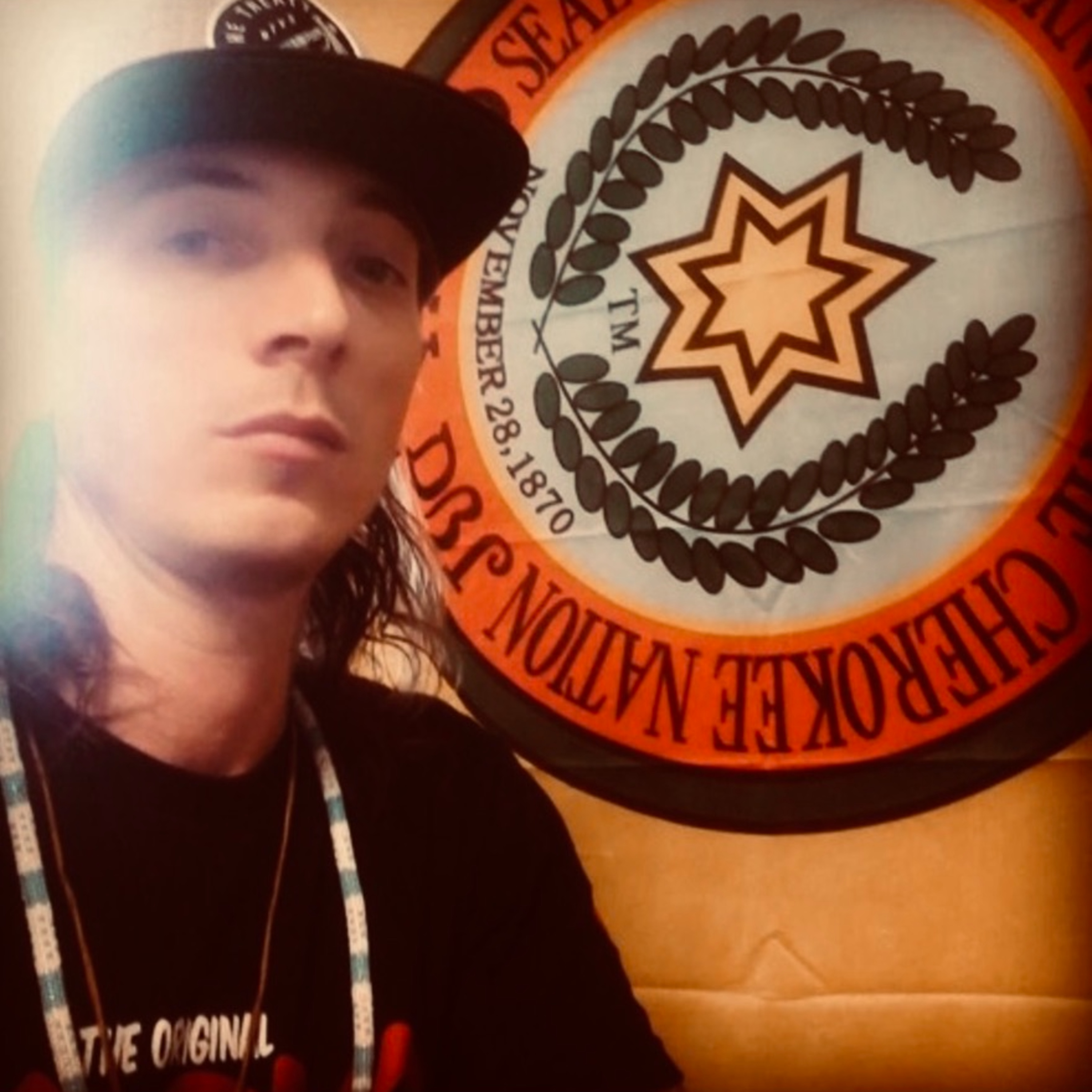
Wósdéé PodcastEpisode 19: Cherokee/Osage Inter-tribal Diplomacy Interrupted (1817-1824)In episode 19, I speak to Frankie Bauer, a citizen of the Choctaw nation of Oklahoma. He is a Ph.D student at University of North Carolina. We discuss the term period of 1817-1824 where Cherokee and Osage nations created inter-tribal treaties with the U.S. mediating. The inter-tribal treaties did not hold up but provide an analysis of the role of US mediation as a mechanism of settler-colonialism as well as the potential for inter-tribal solidarity in the future.
Music by @PurpleCatinSlacks
Video referring to what I was talking about, the Indigenous family on the...
2020-11-0146 min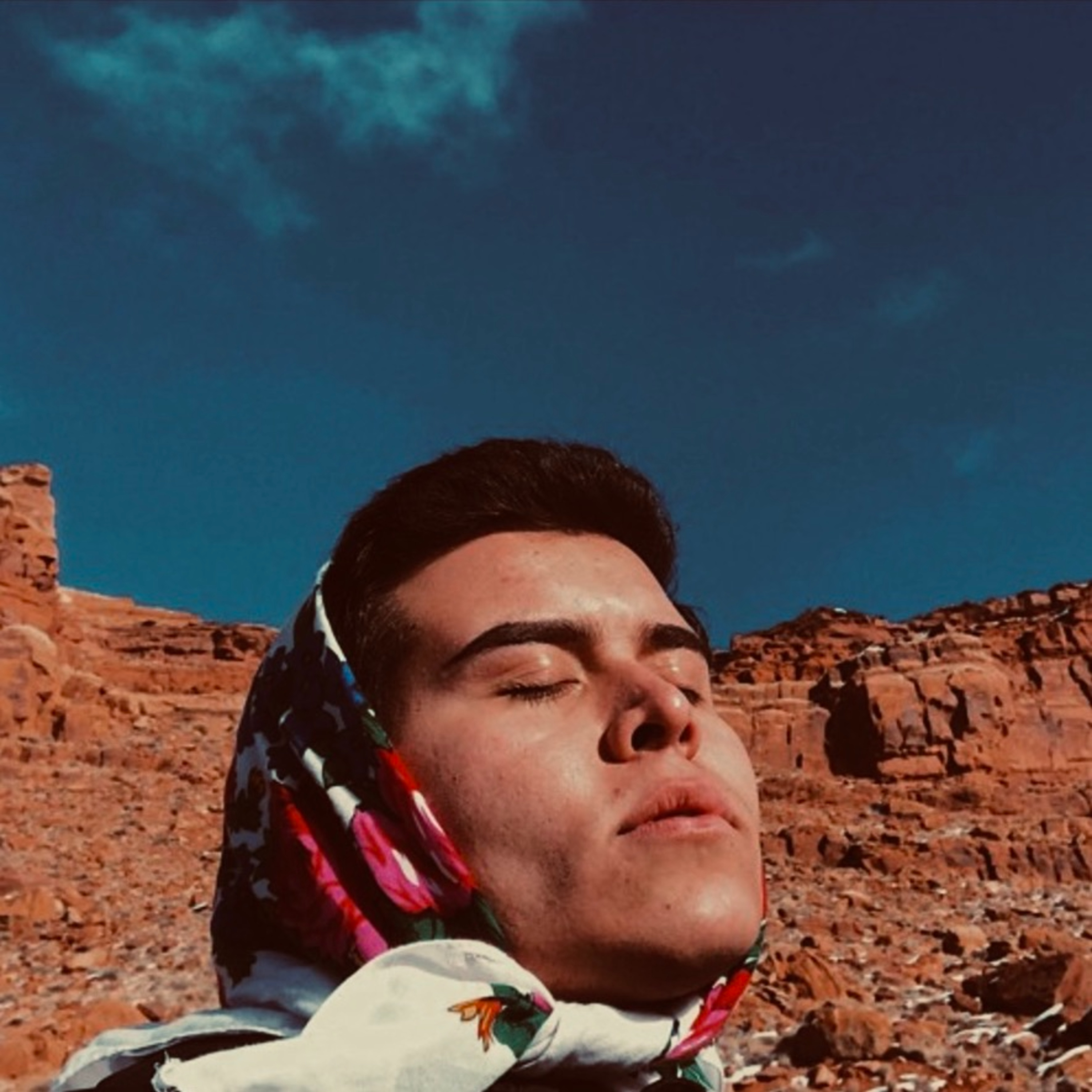
Wósdéé PodcastEpisode 18: Indigenous Feminism and the Practice of InclusivityIn episode 18, I talk to Cody Fetty about Indigenous feminism. Cody explains their experience as an educator for Black Mesa Water Coalition and how the discussion of Indigenous Feminism plays out. We look at the idea of matriarchy and what it means for feminism to be inclusive.
From the discussion, the importance of responsibility and accountability became more transparent.
To support Cody you can find their jewelry collection available for purchase at:
www.instagram.com/glitteringworldgal/?hl=en
Opening music produced by @PurpleCatsInSlacks
2020-11-0153 min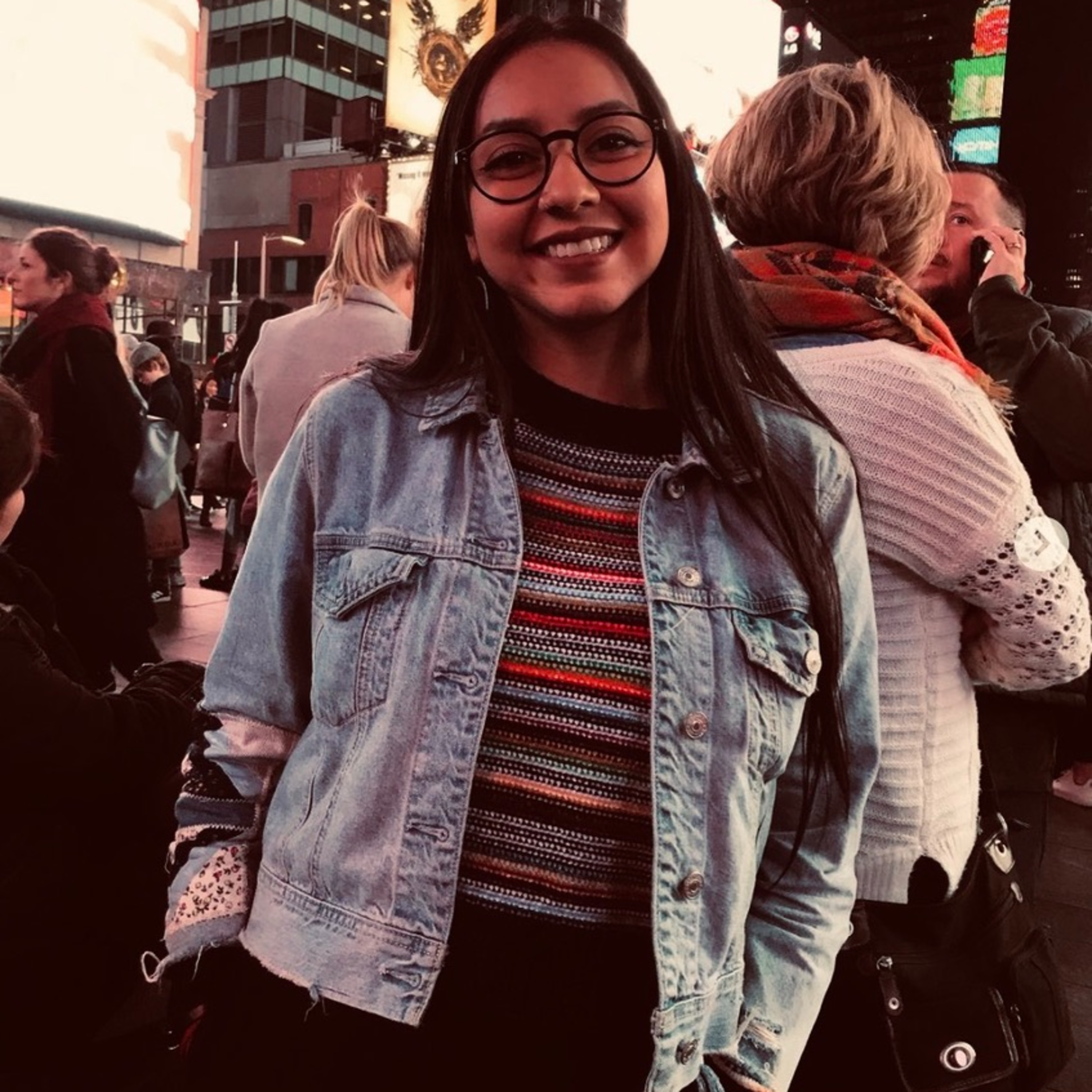
Wósdéé PodcastEpisode 17: Racist Murals, Protests, and Visual SovereigntyWelcome to season 2!
In episode 17, I speak to Tia Folgheraiter a student at Dartmouth. She speaks about the racist mural at the university and the effect it had on the college community, both native and non-native. She briefly goes over the organizing that occurred to get it removed.
As a coincidence, we were near University of North Carolina where space is being contested by white supremacists and anti-racist community members. During our visit we had an encounter the demonstrated the continued struggle for space and symbolism. Dr. Andrew Curley, a previous visitor, provides a brief...
2020-11-0148 min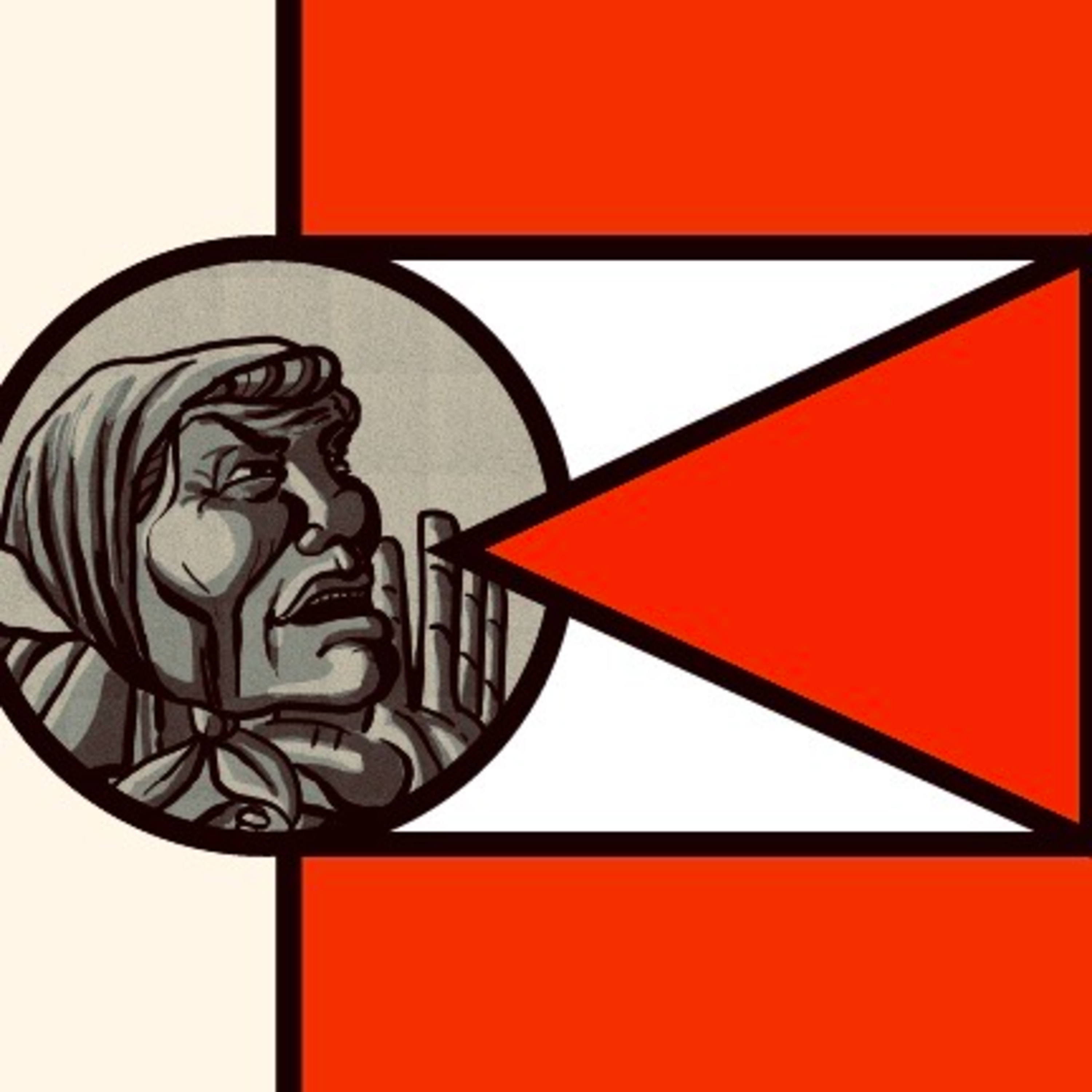
Wósdéé PodcastEpisode 16: Season One Reflections!We recap what I have learned during the first season of the podcast. Tatiana Benally interviews me about my thoughts and goals.
intro/outro: @purplecatsinslacks
2020-11-0146 min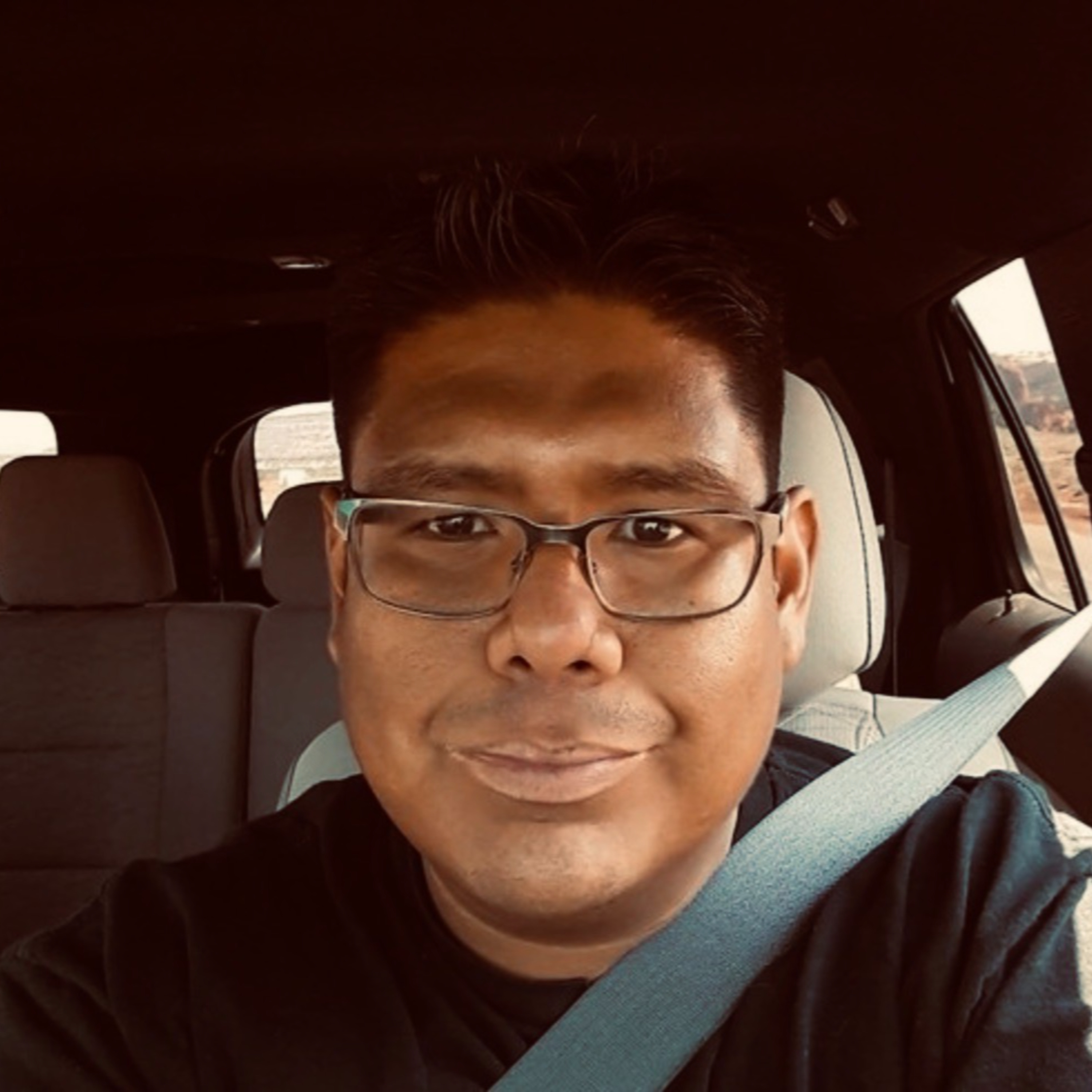
Wósdéé PodcastEpisode 15: Navajo Local Governance: Acronyms, potentials, and limitationsIn Episode 15, I talk to Michael Parrish about Title 26, Local Governance Act. We discuss the political legislation and its potential and limitations. Michael has been studying the Navajo Local Governance for three years. We have worked together for just as long.
intro/outr music by: @purplecatsinslacks
2020-11-0158 min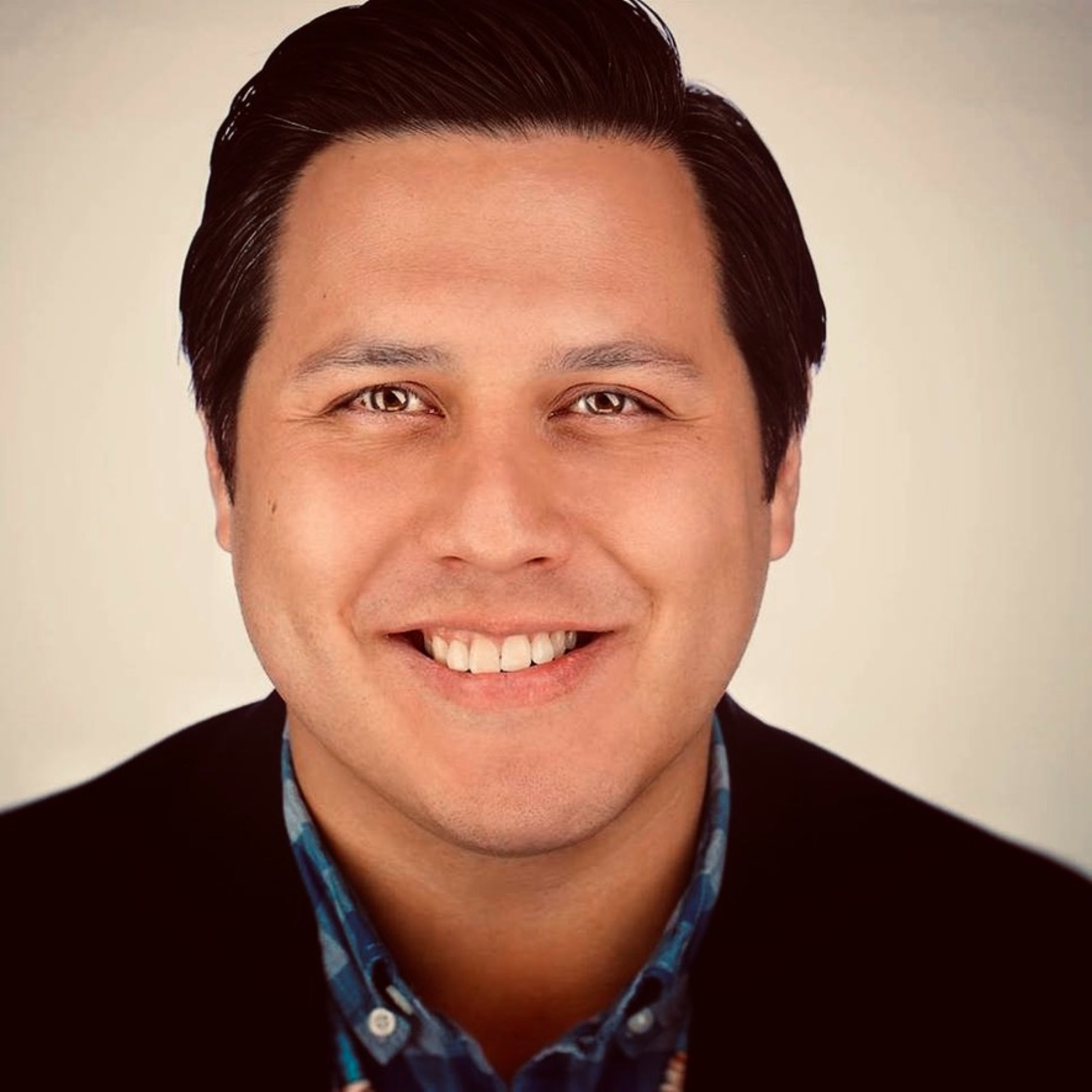
Wósdéé PodcastEpisode 14: Reflections of Campaigning, Voting, and Electoral PoliticsIn this episode I talk to James Courage Singer about his political pursuits, inspirations, electoral politics, and much more. He explains his analysis of the current problems within Utah and what he hopes to accomplish.
James Singer is a professor at Salt Lake Community College in the Sociology department. He is currently running for Congress in Utah.
2020-11-0100 min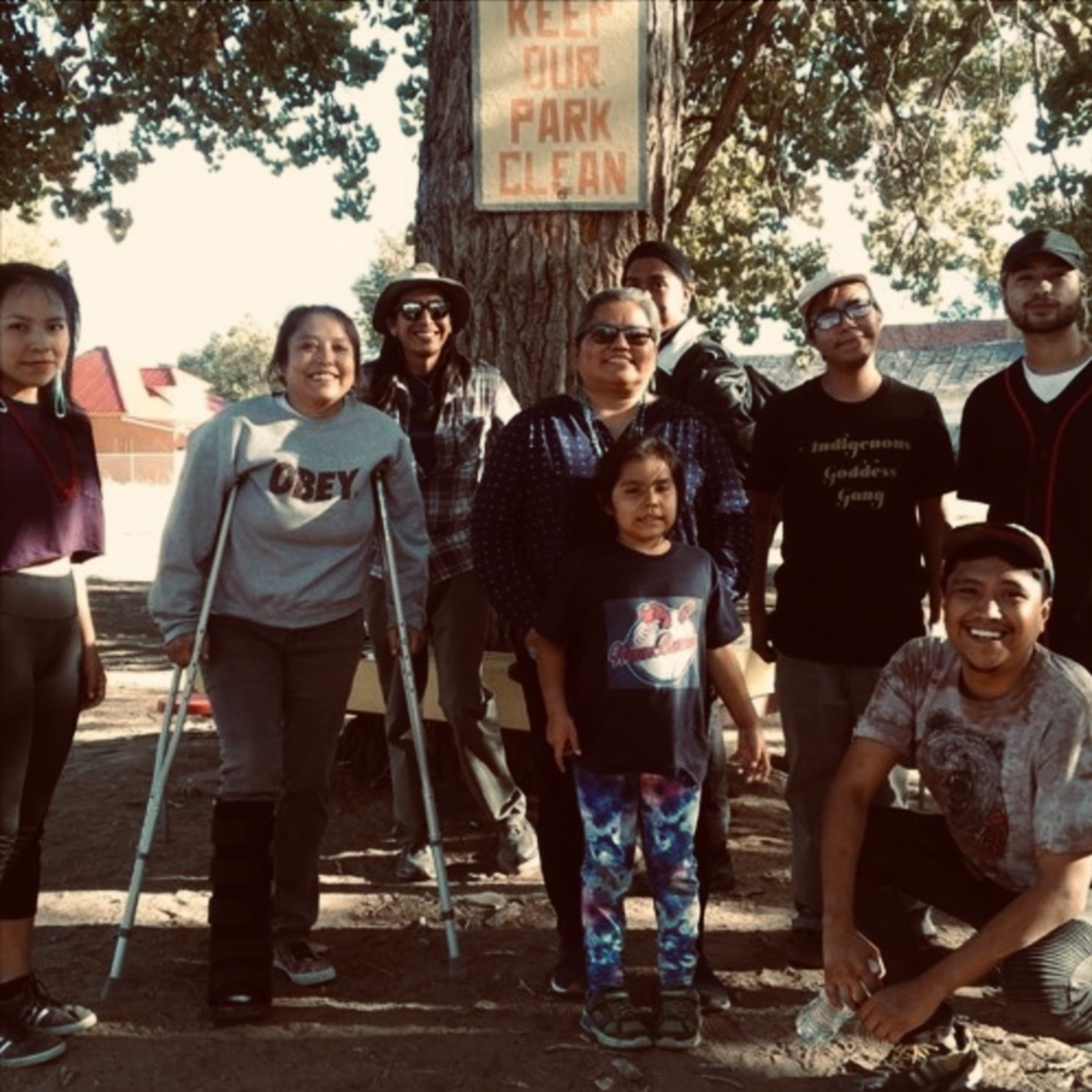
Wósdéé PodcastEpisode 13: Diné Introspective and the 1st Full Circle ConferenceIn this episode, I talk to people at the Diné Introspective First Inaugural Full Circle Conference in Shiprock, Navajo Nation. I speak to both members of Diné Introspective and participants about the conference and the reasons behind the event. The conference began on October 4, 2018 and ended on October 7, 2018.
Diné Introspective members organize, educate, motivate, empower, to sustain a healthy community by embracing culture and resilience. They promote mental, physical, spiritual wellbeing, and environmental issues surrounding our local communities to increase intellectual health awareness between self-reliance and living a healthy lifestyle (Yá'átéehgo jiiná).
intro/o...
2020-11-0134 min
Wósdéé PodcastEpisode 12: Big Media, Grassroots Media, and PoliticsIn this episode, I talk to Jen Byers, a journalist and now Assistant Producer at AJ+ news media, about the Big Media, Grassroots Media, and Politics. The media is pertinent to politics and we work our way through the discussion with the ways they connect in mind. We also discuss the role of journalists and some advice she has for people who want to go into journalism.
Media is described as the means of mass communication and Trump has worked to discredit a lot of it and this has serious consequence on how Politics are played out...
2020-11-0142 min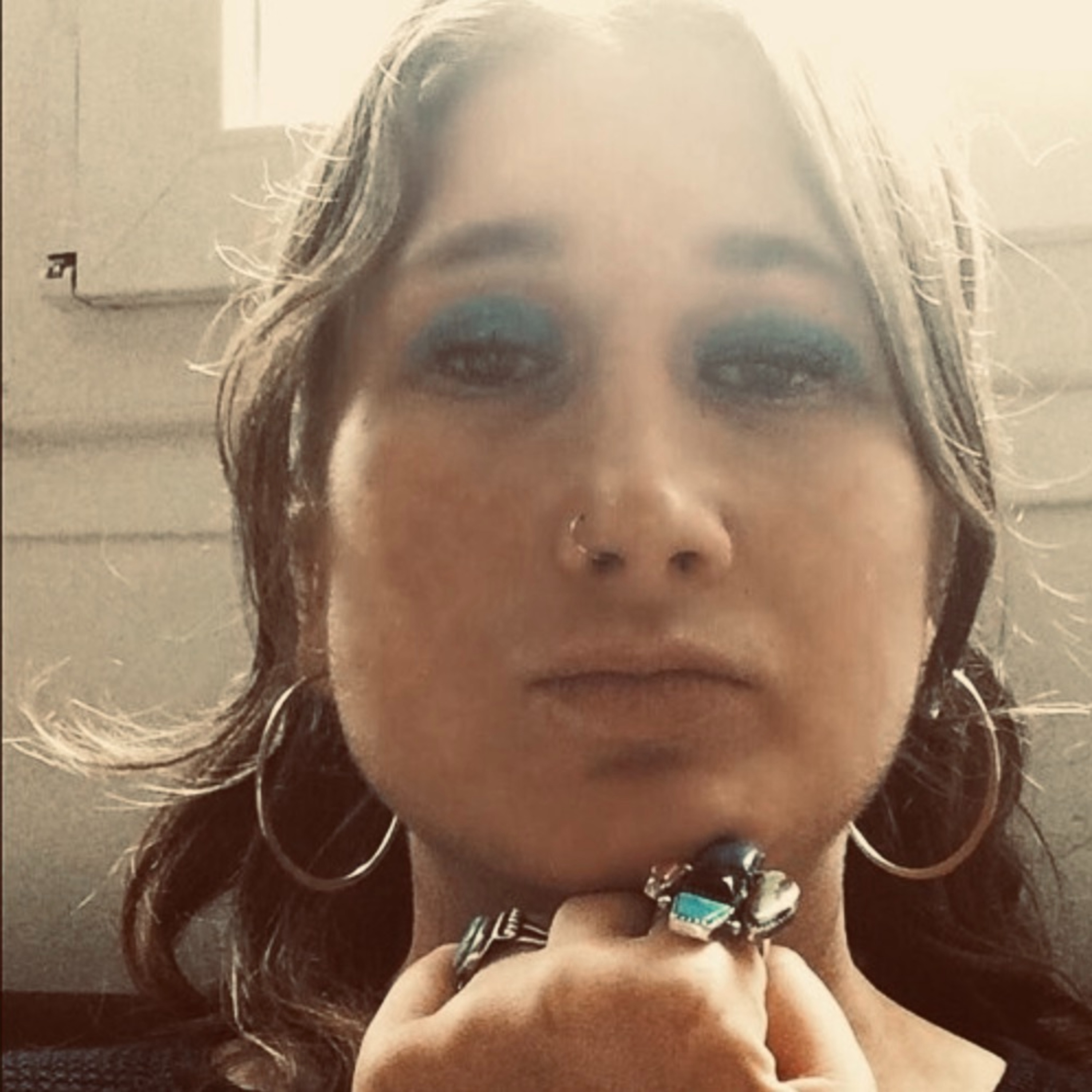
Wósdéé PodcastEpisode 9: Food Movements, Food Sovereignty, and The Navajo NationIn Episode 9, I talk to Eugénie Clément Picos about food movements, food sovereignty, and how it has played out on the Navajo Nation. Eugénie is a Ph.d student from Spain and she has chosen the Navajo Nation for her place of study.
We discuss the corporations, power dynamics, her personal background that lead her to study food movements, and her experience on the Navajo Nation.
Half through the interview we ended up walking through downtown Flagstaff, a Navajo border town.
Intro/Outro Music: @PurpleCatsInSlacks
2020-11-0140 min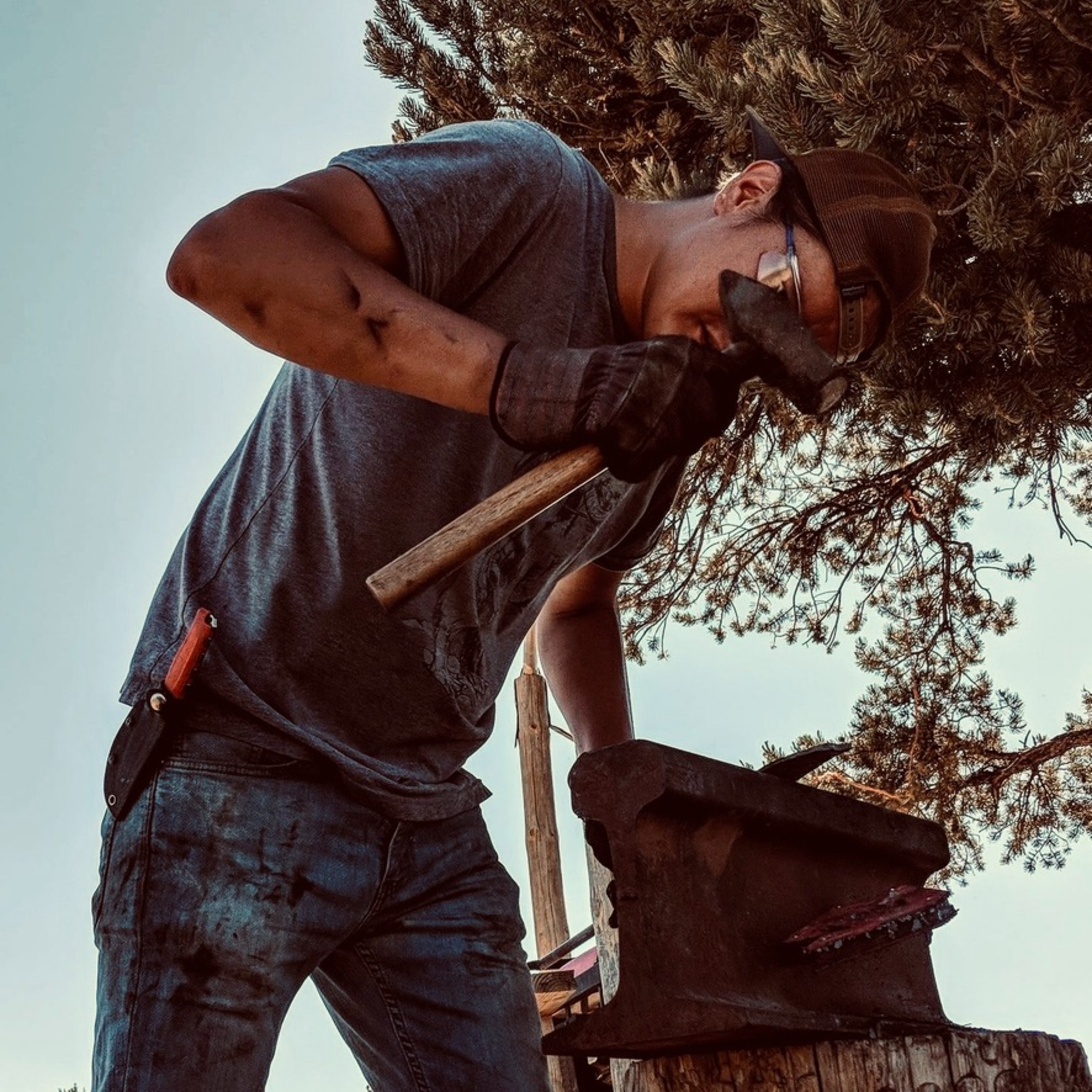
Wósdéé PodcastEpisode 11: Phenomenology, Marxism, and WERKIn Episode 11, I sit and talk to Cody Artis about our passion, philosophy. We start with phenomenology, existentialism, and marxism. Cody has been forging knives and we look at work through different philosophical lenses.
We look at how work is gendered and how capitalism alienates the producers. Work has changed for Navajo people since colonialism and we do our best to investigate it and understand the changes.
In the spirit of phenomenology, we incorporate our own experiences (subjectivity) to understand the larger objective world. nayeeeee
www.facebook.com/ArtisForge-725364051187409/
https://www...
2020-11-0145 min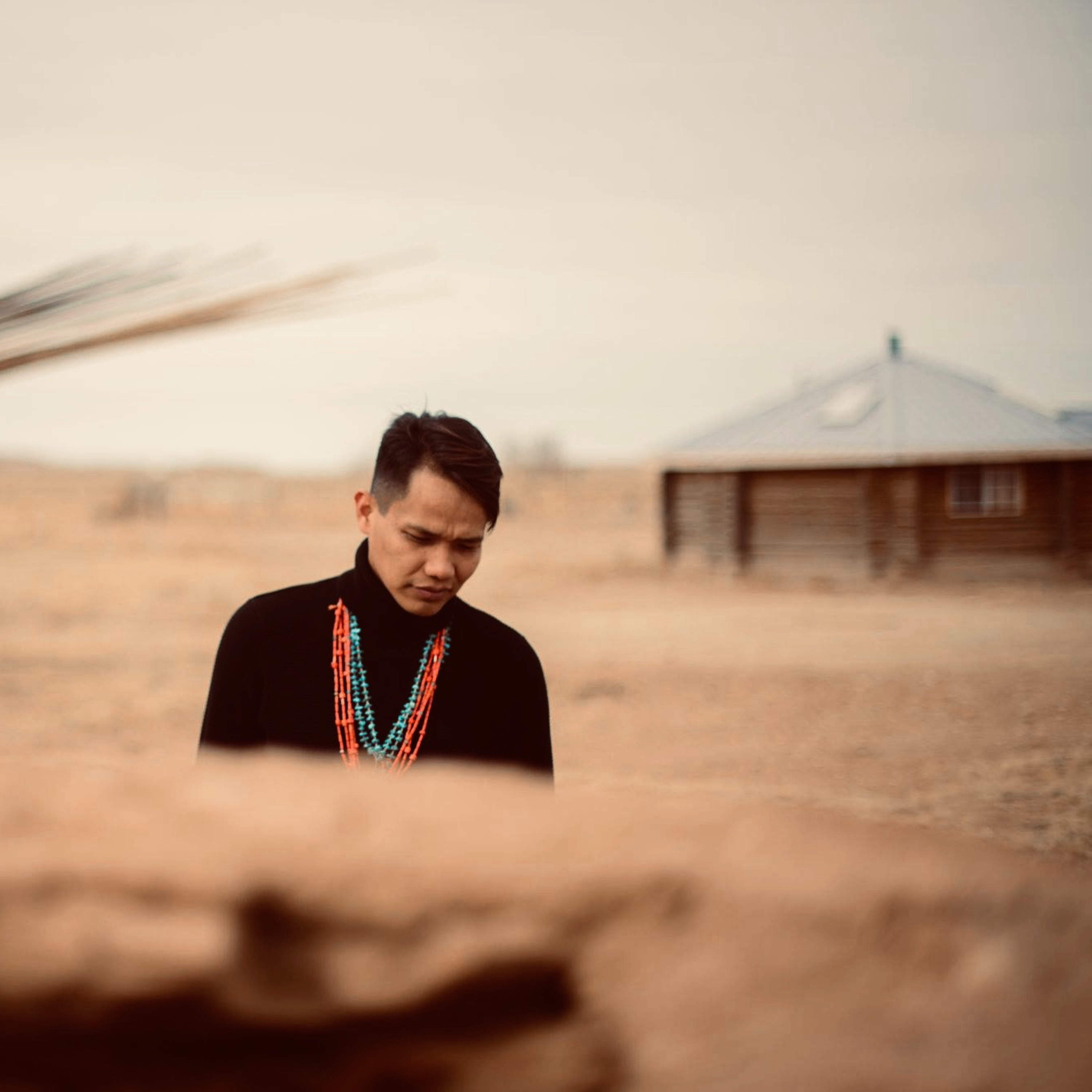
Wósdéé PodcastEpisode 10: Bears Ears MovementIn this episode, Dr. Andrew Curley talks to Alastair Bitsóí about their experience covering the Bears Ears movement. They open up the discussion with "public lands" status and how the concept relates to the larger movement. They discuss the land status of Bears Ears. Bitsóí also speaks to the beginning of the movement with the different tribes that fought to protect the sacred sites and how tribes had a role in the designation. They discuss how the experience changed Bitsóí.
Intro/Outro Music: @PurpleCatsInSlacks
2020-11-0138 min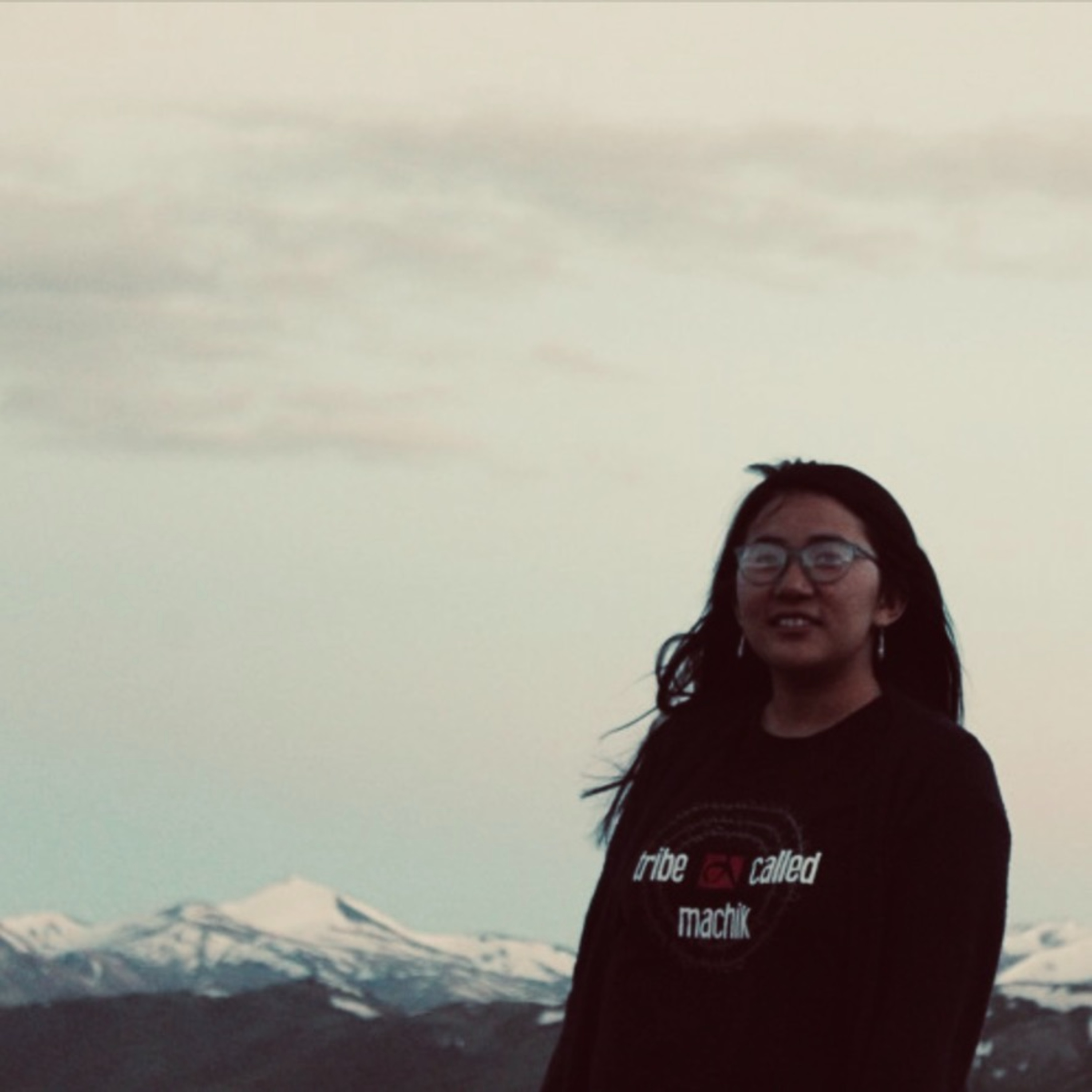
Wósdéé PodcastEpisode 8: Similar Struggles of Tibetan and Navajo PeopleIn Episode 8, I talk to Tenzin Yangkey about the similarities between Navajo and Tibetan struggles. The topics range from the history of Tibet, the eventual exiled Tibetan communities, the role of resources in the both Navajo Nation and Tibet, the aspirations of the Tibetan People.
2020-11-0151 min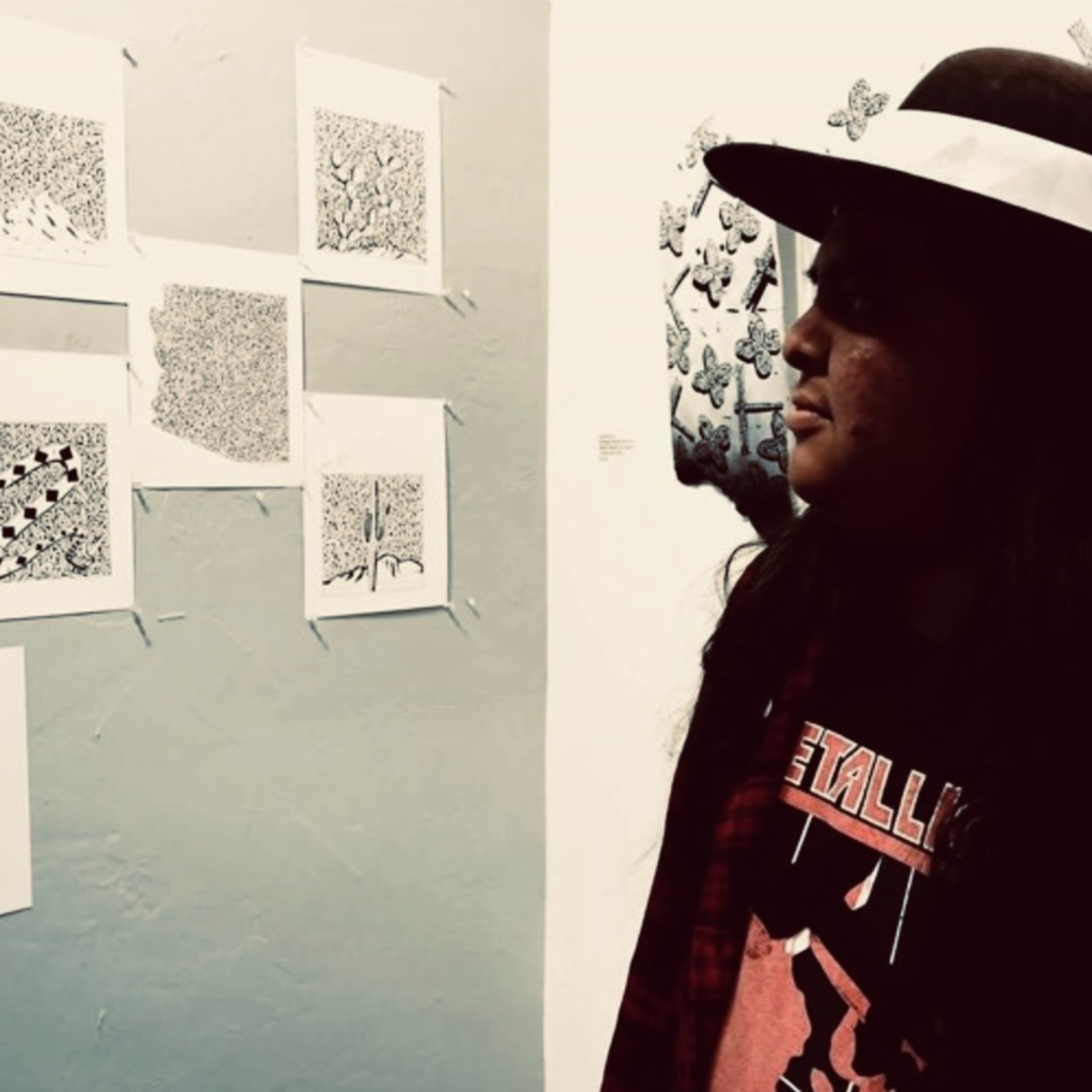
Wósdéé PodcastEpisode 7: Loop 202, U.S. Borders, and SolidarityIn Episode 7, I talk to Napoleon Marrietta about struggles within his and other communities surrounding Phoenix, Arizona. We discuss Loop 202, South Mountain Freeway, and its development on Oodham land. In this discussion, the topic of tribal consultation and colonial courts surfaces.
We discuss the border on indigenous lands, Tohono Oo'dham land, and how it has affect the community. Colonial borders are always detrimental to indigenous communities.
Throughout the discussion, solidarity amongst indigenous people is brought up. Phoenix is one of the largest border towns and it hosts many different tribal members.
Intro/Outro...
2020-11-0154 min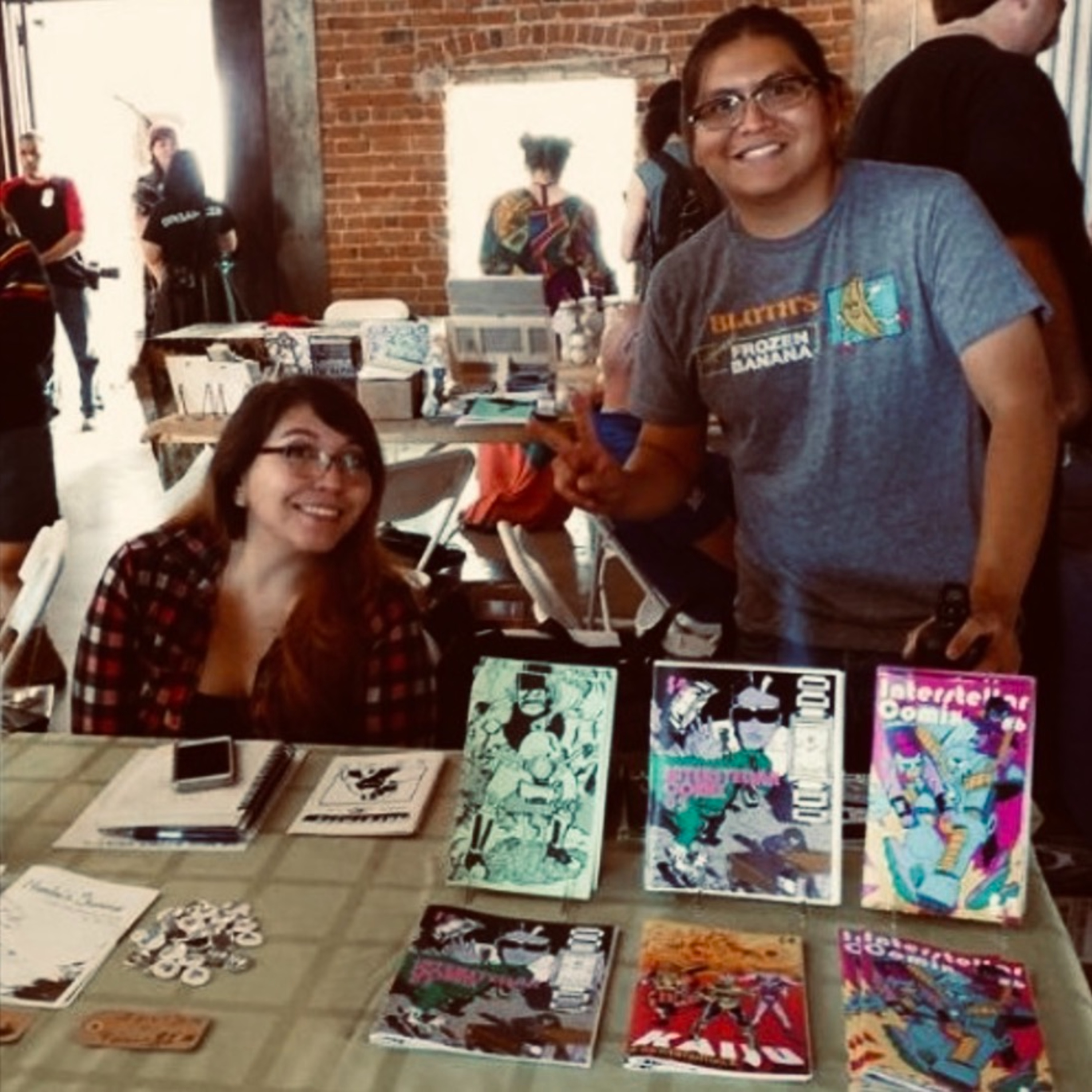
Wósdéé PodcastEpisode 6: Diné Comics, Inspirations, and GoalsEpisode 6 I talk to Damon and Tatum. We discuss comic books, identity, inspirations, and other topics. Both are Diné comic book artists who reside in Phoenix. They participate in the comic book locale.
Damon Begay:
tapas.io/damonbegay7
instagram: interstellar.comix
Tatum:
tapastic.com/tatumbowie
instagram: 90sbowie
Intro/Outro Music: @PurpleCatsInSlacks
2020-11-0157 min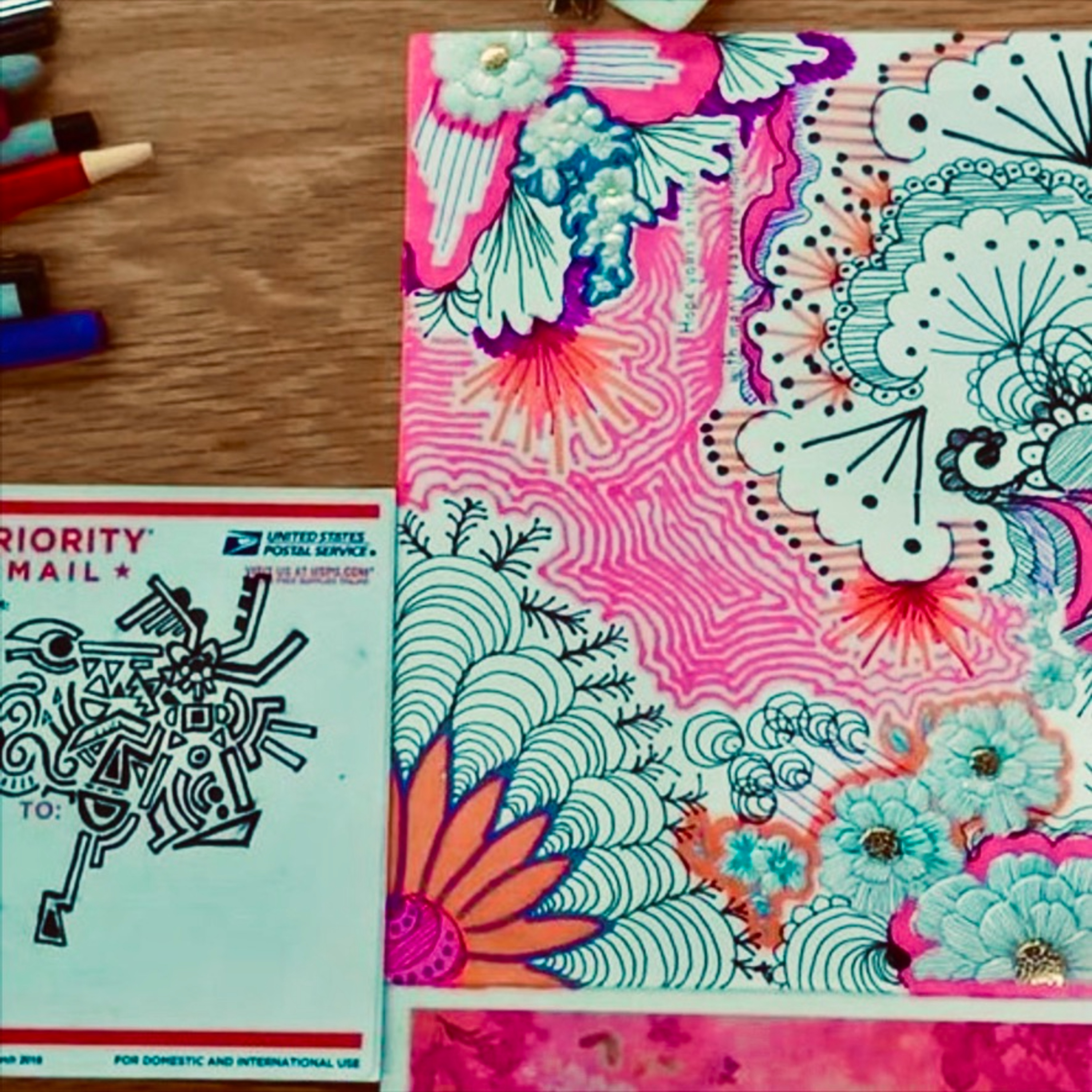
Wósdéé PodcastEpsiode 5: Art, Power, Politics, and Art SchoolEpisode 5: I speak to Rylin Becenti about art, her experience as an artist, influences, politics, and art school. We discuss her views on art and how art can be powerful based on the artist, how it interacts with space, and how it interacts the audience.
We also look at the way capitalism commodifies Indigenous art, artists, and creates problems for future artists.
Intro/Outro Music: @PurpleCatsInSlacks
2020-11-0158 min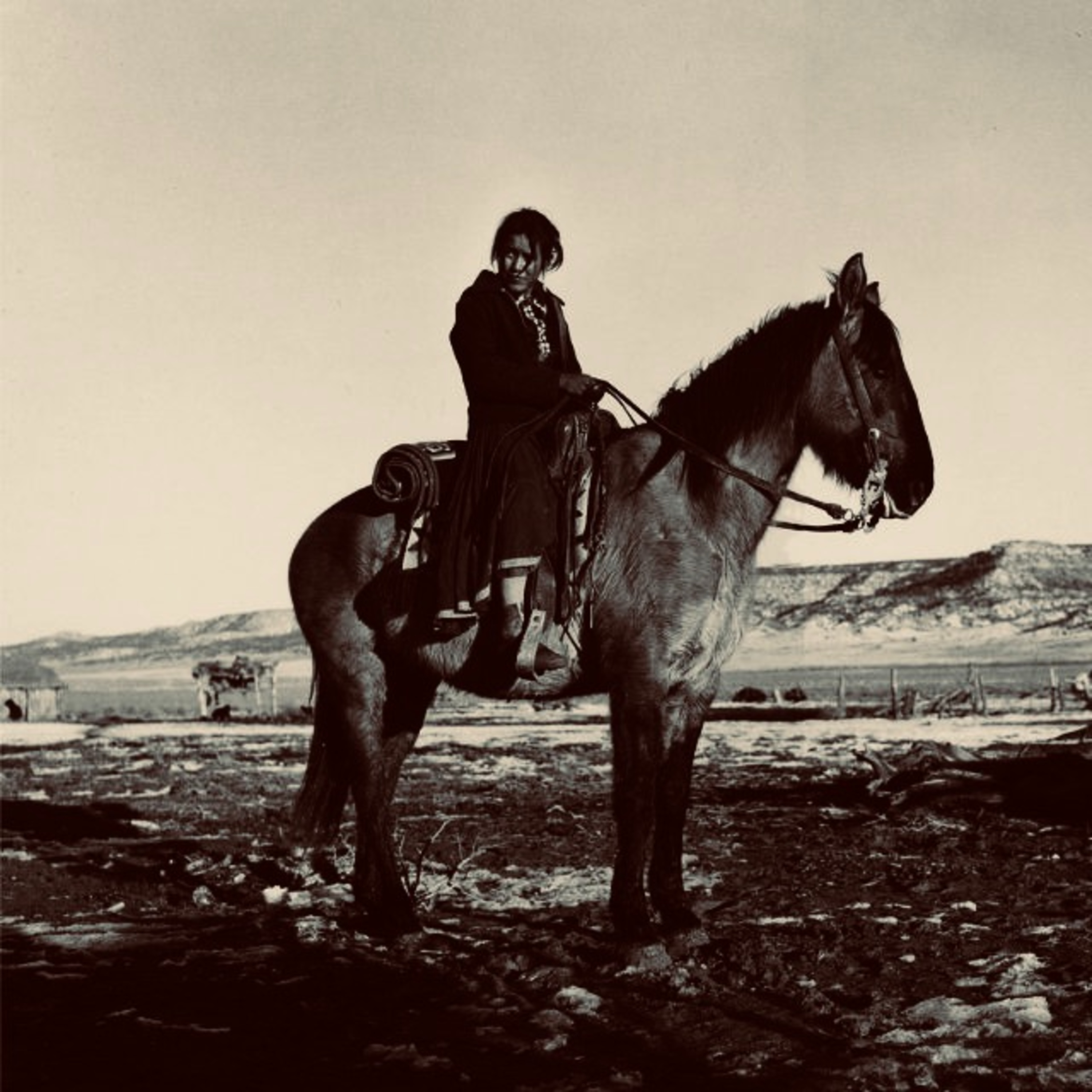
Wósdéé PodcastEpisode 4: Horses, Grazing, and Land ManagementEpisode 4, I speak to Vicki Kee, a grazing committee member for 12 years, about the horses, grazing, and land management on the Navajo Nation. We begin our discussion looking at the recent deaths of horses in Gray Mountain and make our way into the larger topics.
Intro/Outro Music: @PurpleCatsInSlacks
Photo: A Navajo woman riding horse, near Ganado, Arizona, 1948
Photo by John Collier Jr. in 1948
https://www.flickr.com/photos/johncollierjr/sets/72157603042564497
2020-11-011h 01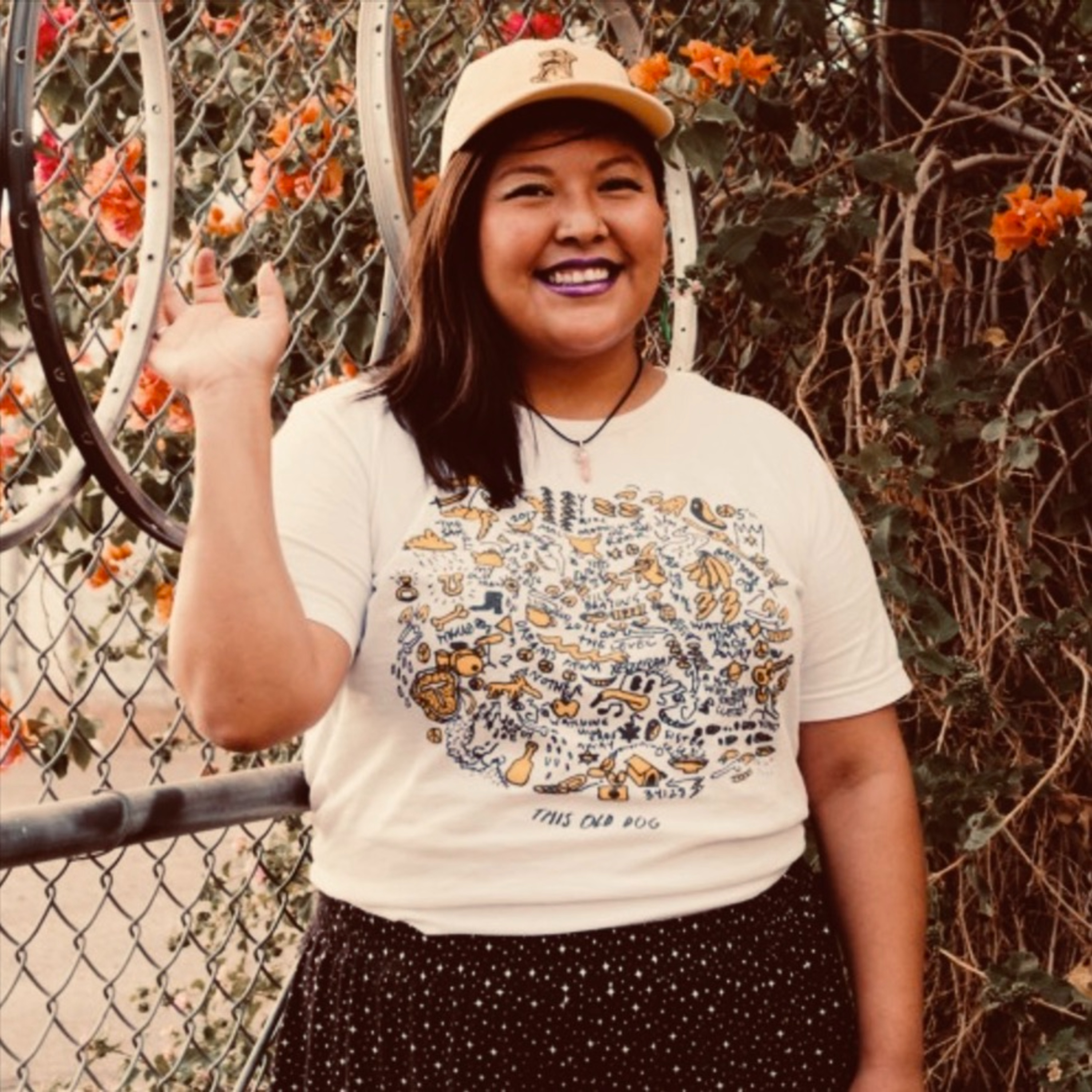
Wósdéé PodcastEpisode 3: Reproductive JusticeEpisode 3: I spoke to Rebecca Jones about reproductive justice, intersectionality, solidarity, and music. We discuss the reproductive justice and what it means for indigenous people and how intersectionality provides a critical lens for the world. We also discuss how reproductive justice has influenced her world view, actions, and music.
Sistersong:
sistersong.net/
Weedrat: Playing April 27th, Albuquerque, New Mexico
www.facebook.com/weedrat/
Nizhoni Girls: Playing April 28th, Albuquerque, New Mexico, Launchpad
www.facebook.com/nizhonigirls/
Asdzaa Warrior Fest: July 28th, Counselor, New Mexico
www.facebook.com...
2020-11-011h 09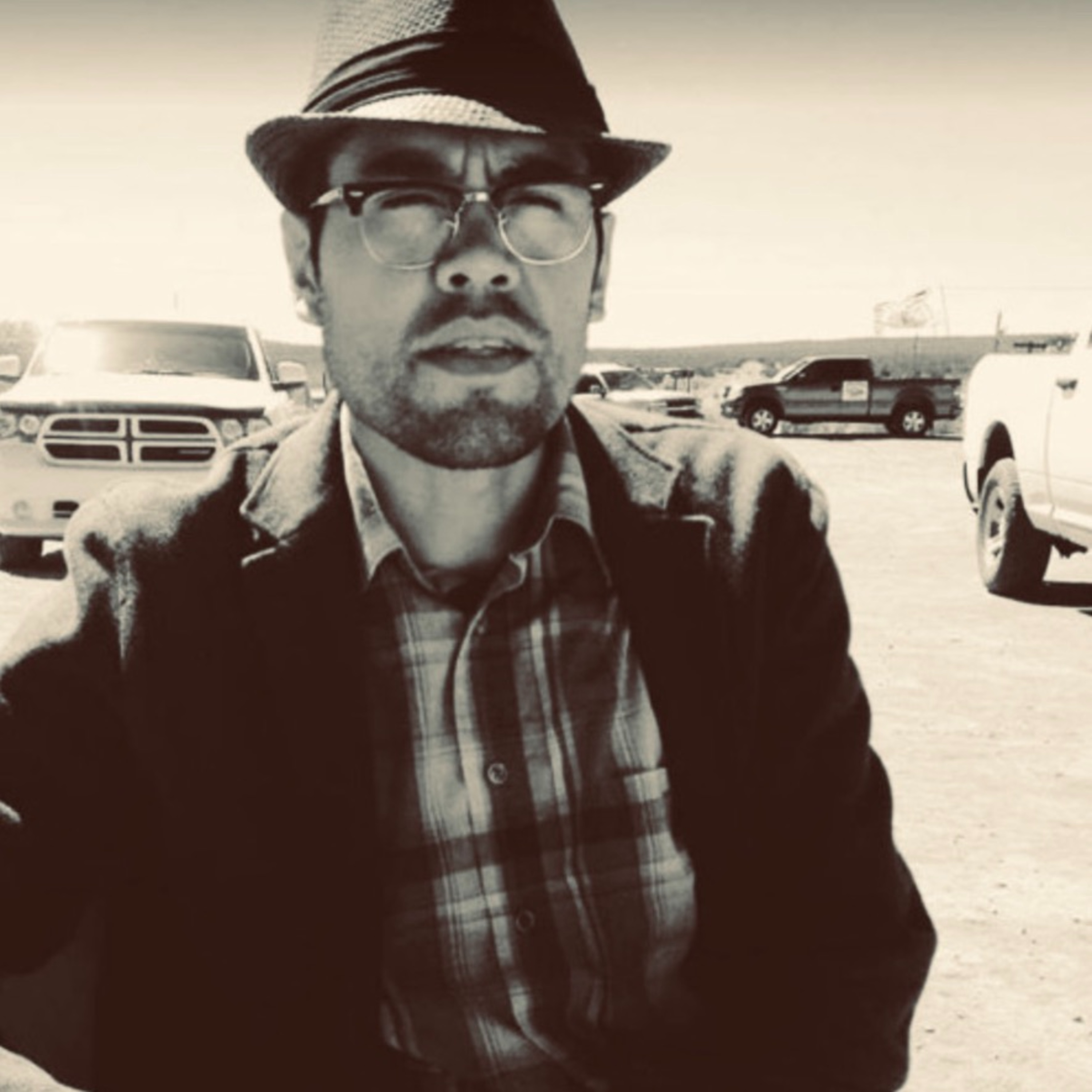
Wósdéé PodcastEpisode 2: Neoliberalism and the Navajo NationIn episode 2, I speak to Dr. Andrew Curley about neoliberalism, the Navajo Nation, and socialism. He provides insight into neoliberalism and how it manifests in the Navajo Nation. He also speaks to his views on socialism and what he imagines for indigenous people.
We also have special guest appearance from George Bush and Bernie Sanders.
Intro/Outro Music: @PurpleCatsInSlacks
2020-11-0143 min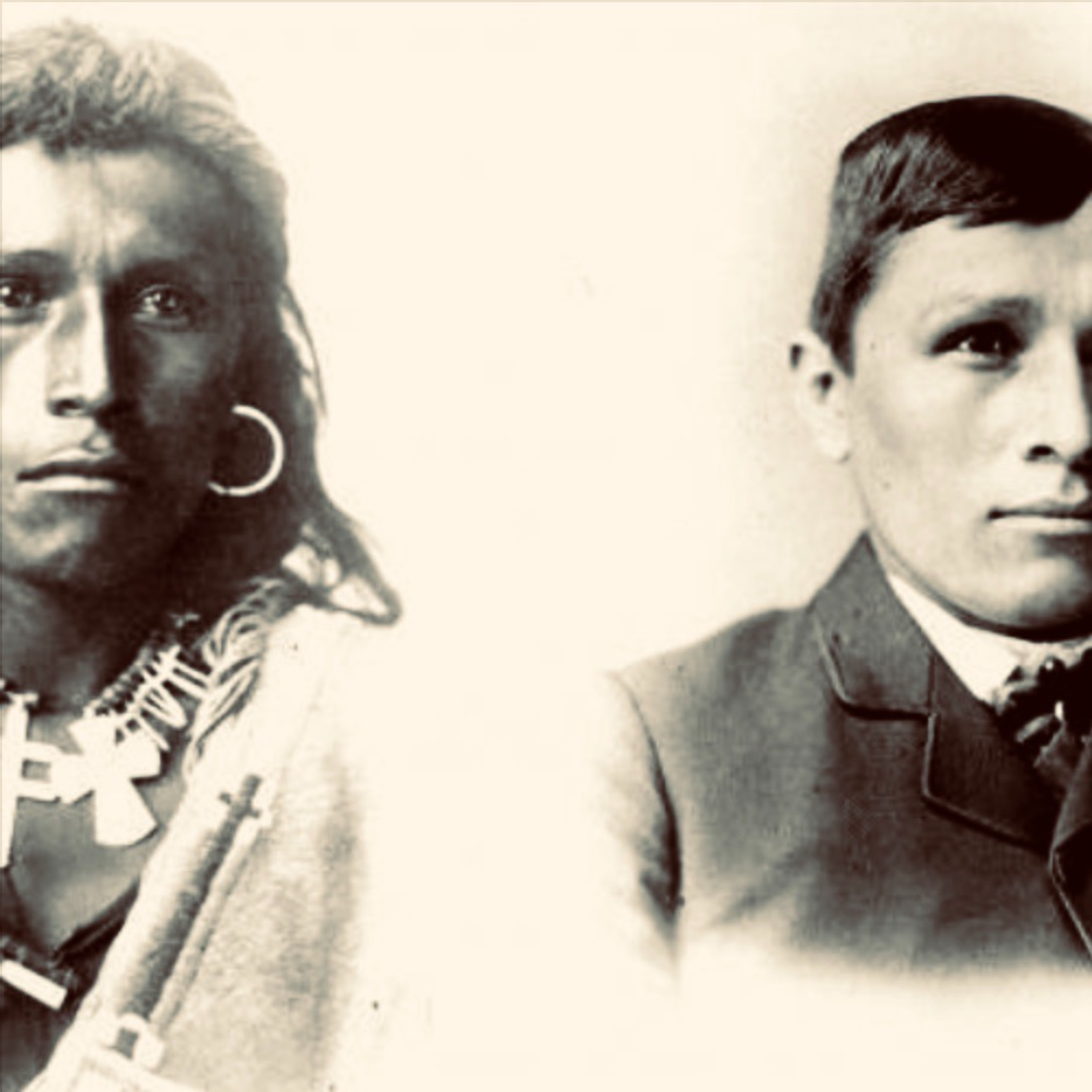
Wósdéé PodcastEpisode 1: Assimilation, Schooling, and Higher EducationI spoke to Dr. Franklin Sage about his research regarding Higher Education and Indigenous student. We discuss the role of education has in colonization as an assimilation process. Western education instilled in indigenous people patriarchal tendencies and individualistic mindset. Education produced gender roles that shifted indigenous people away from the matrilineal & matriarchy foundations. We spoke about his experience, as well as mine, in college and beyond.
2020-11-011h 01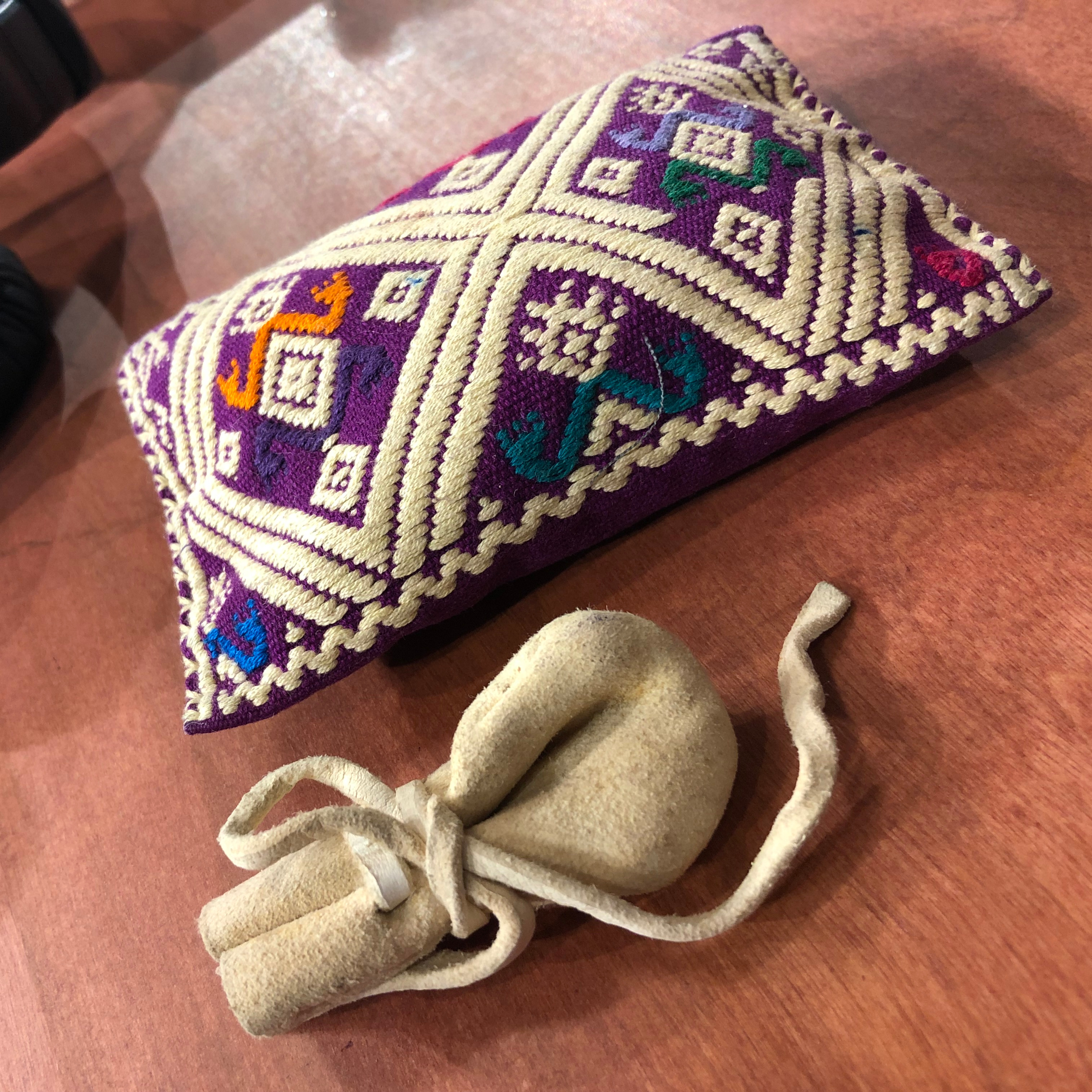
Coming ForwardA view into complex trauma from one indigenous survivor's perspectiveIndigenous-related articles and podcasts mentioned:
Missing-and-Murdered-Indigenous-Women-and-Girls-Report
Wósdéé Podcast, Navajo Nation
All My Relations Podcast
Returning to the Rez on Apple Podcasts
Trauma and suicide in Indigenous people, Centre for Suicide Prevention
-- Themes/Mentioned Terminology:
Complex Trauma
Complex PTSD
Trauma within an Indigenous Community
Disrupting Racist Comments and Stereotypes
Colonization and Decolonization
Native Therapist
Dissociation
Triggers
Denial
Language
As always, additional resources regarding abuse (local, hotlines, national): https://www.ascanyc.org/resources
-
Donations (thank you!): http://paypal.me/comingforward
2019-07-2942 min